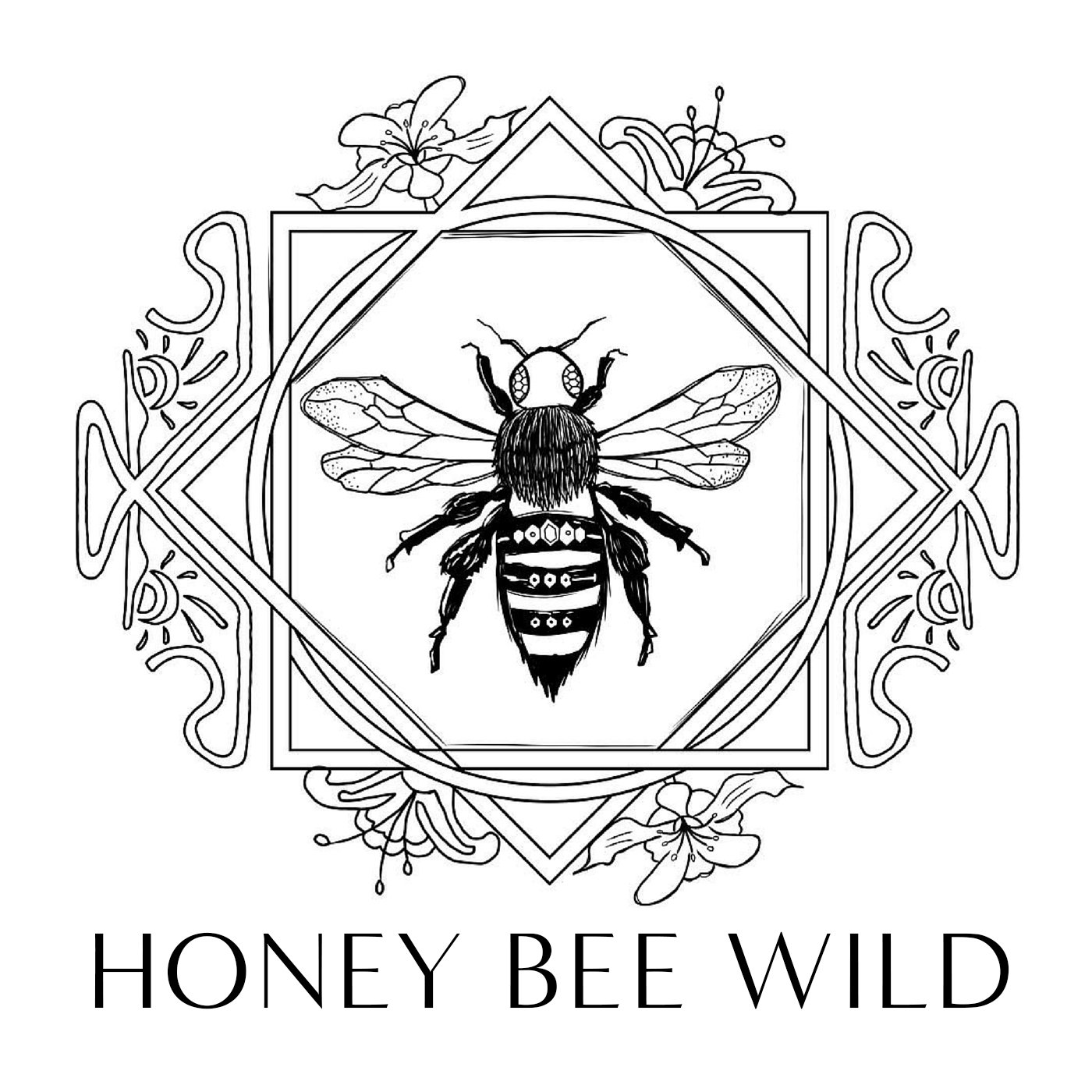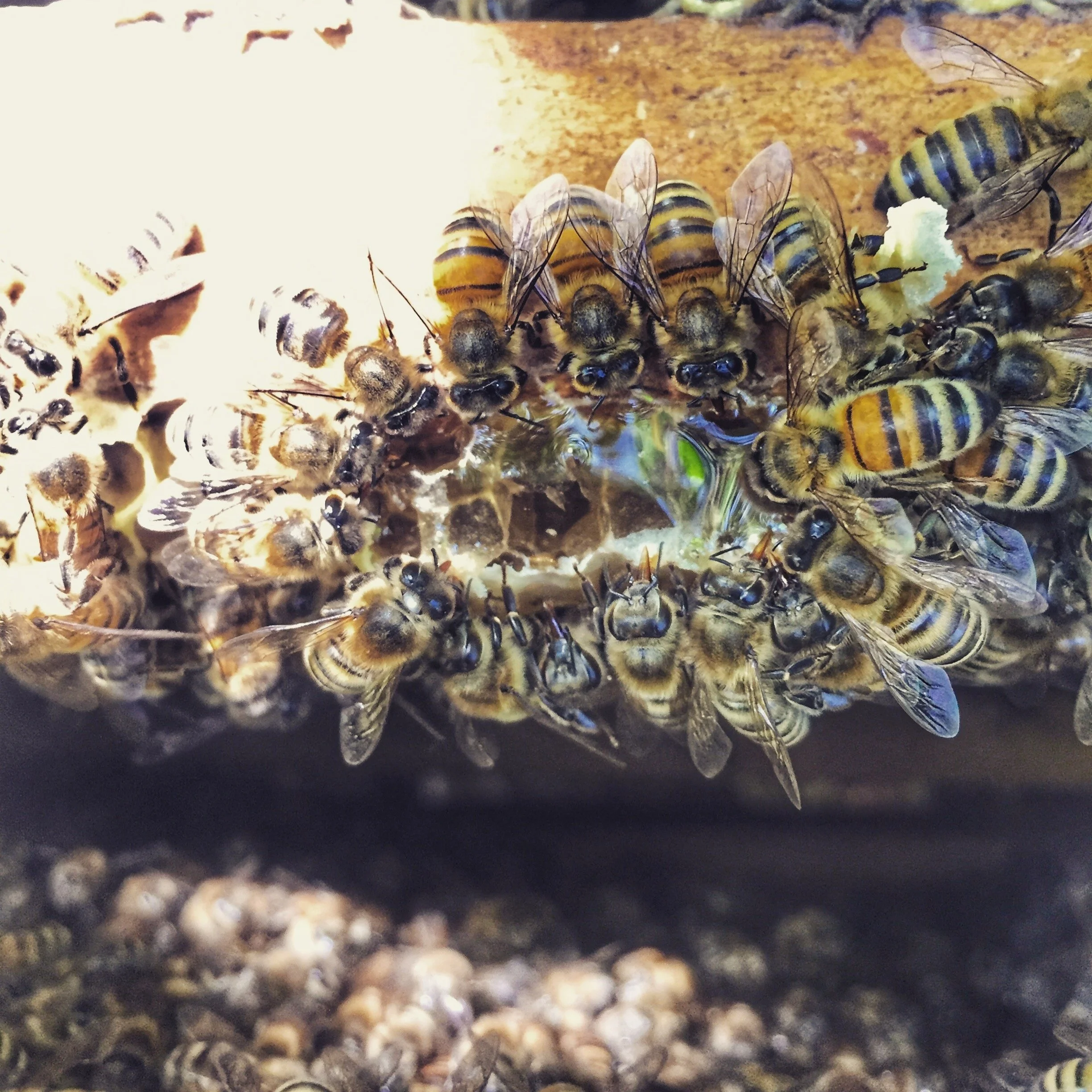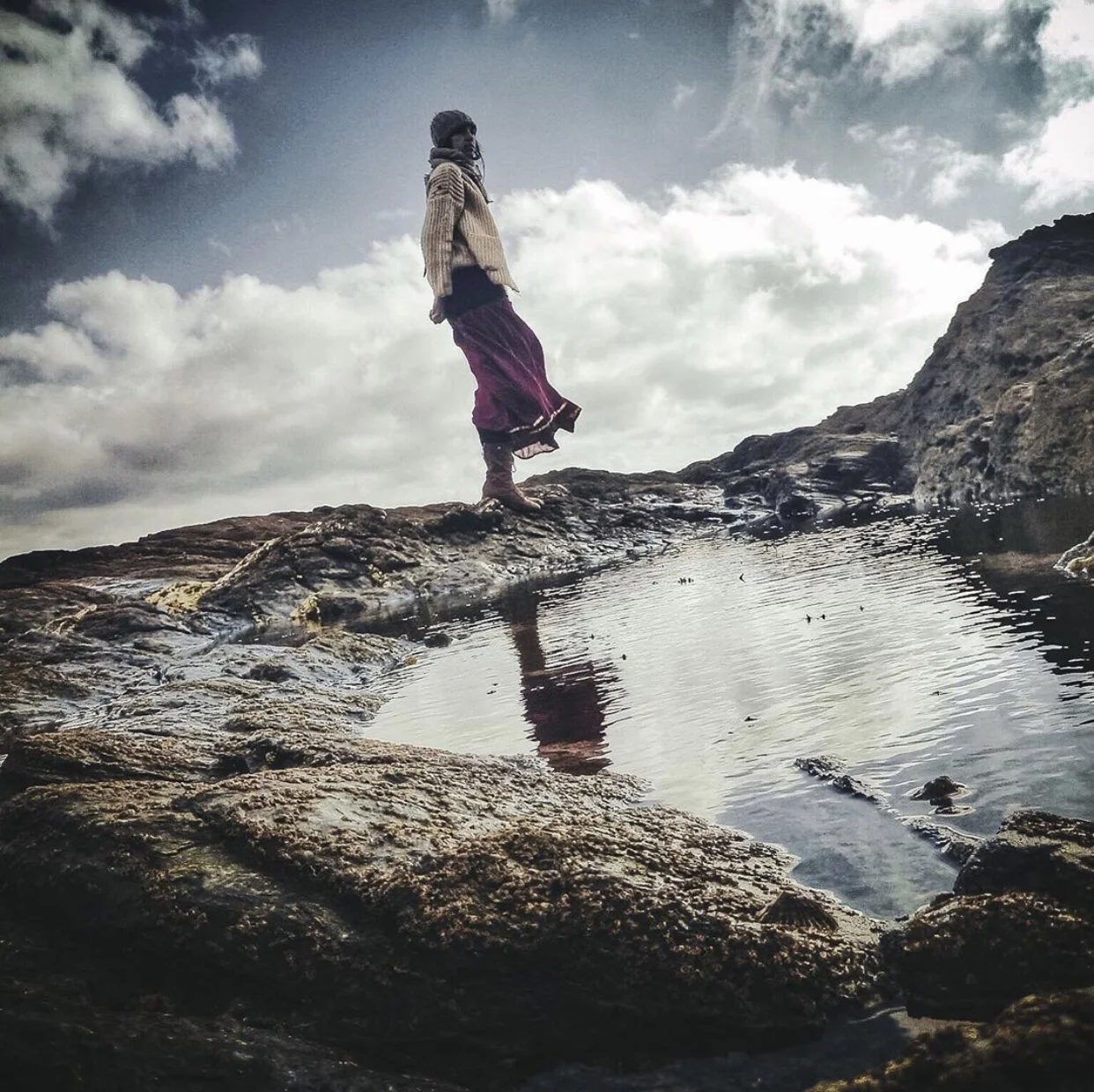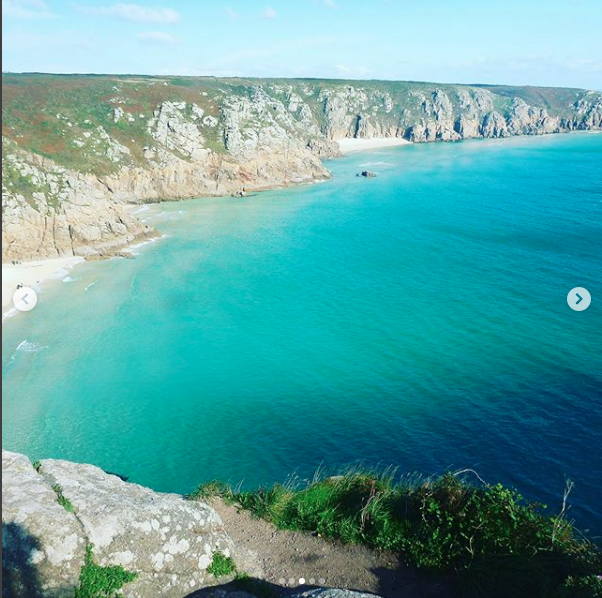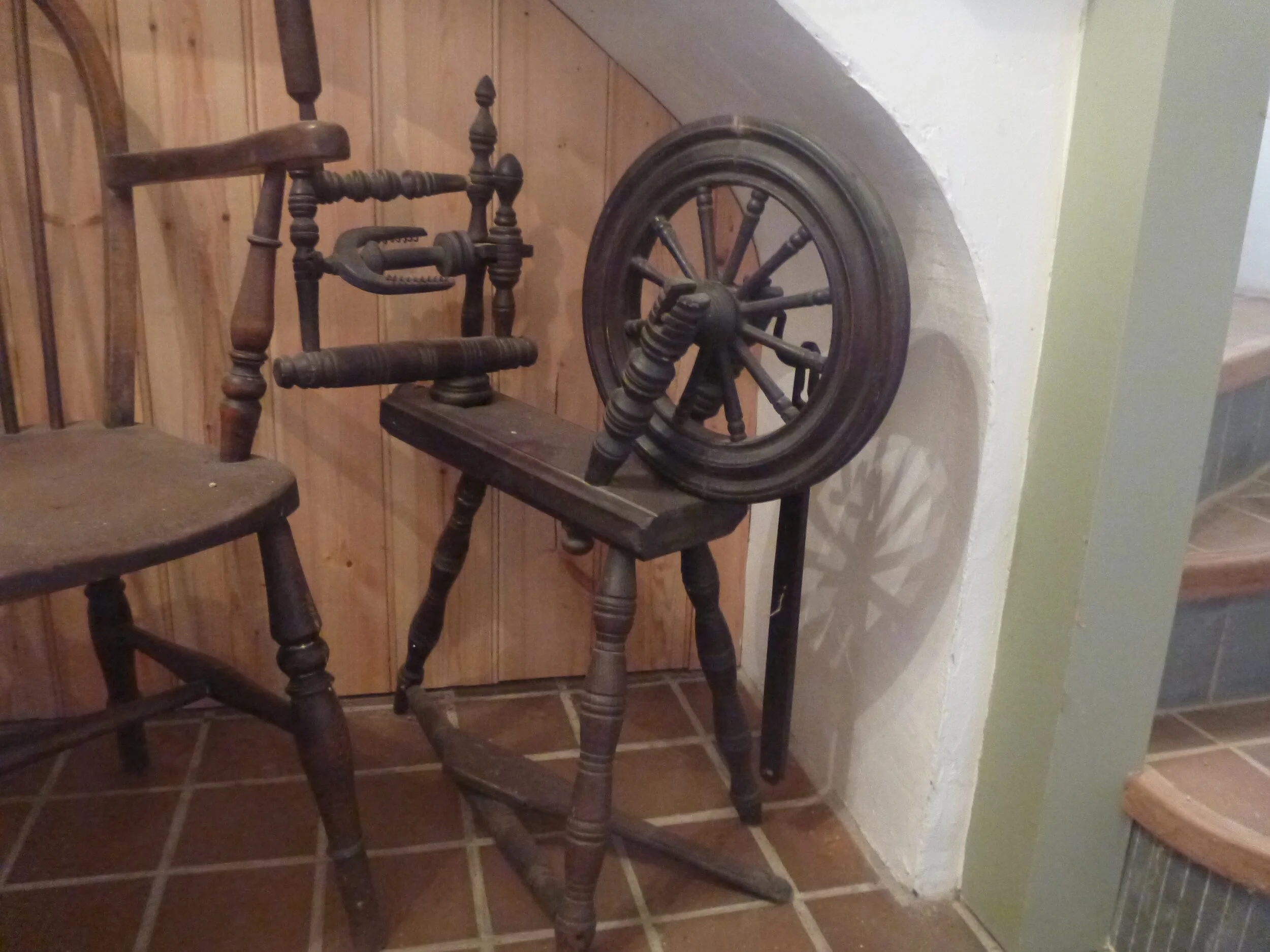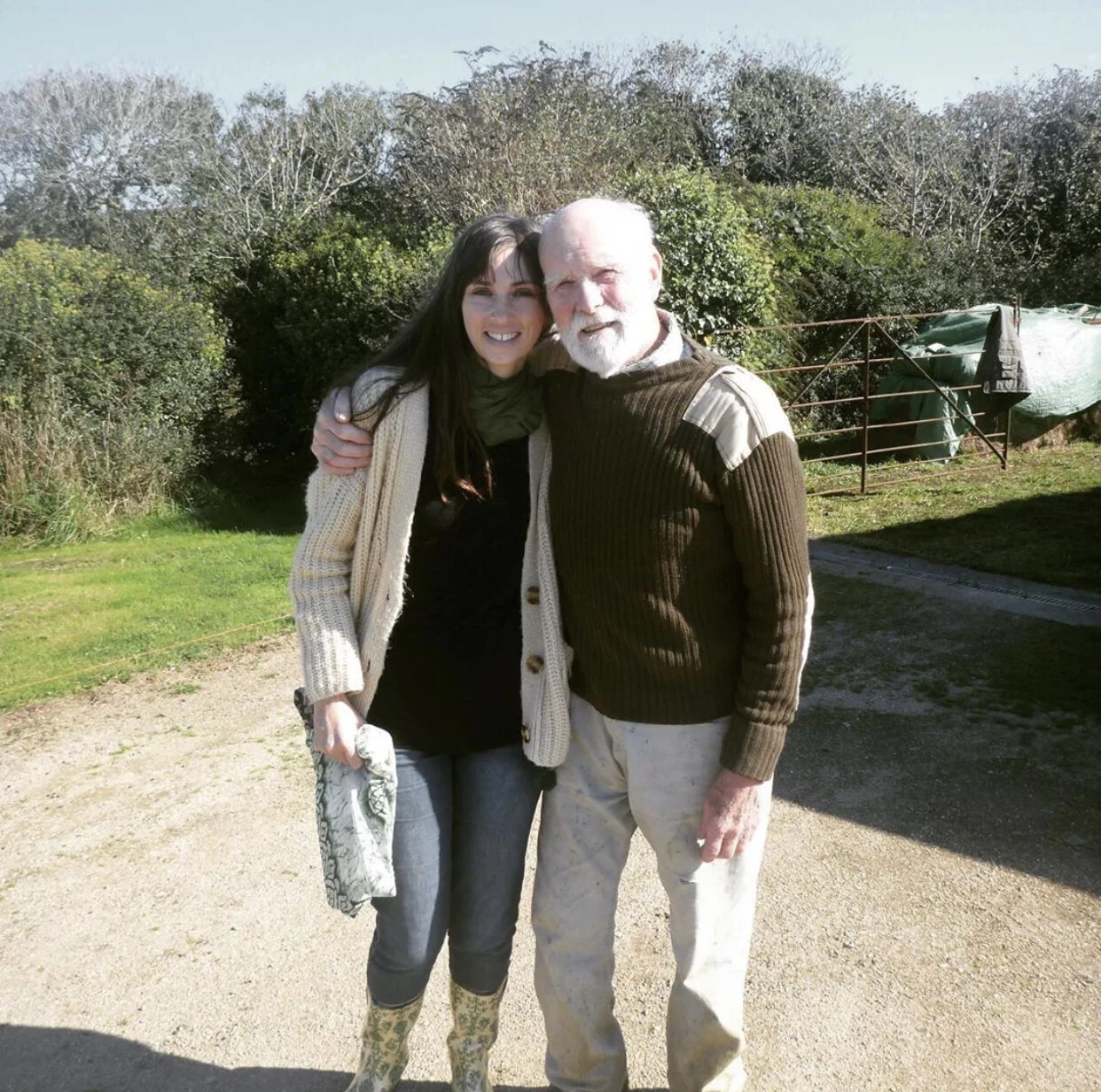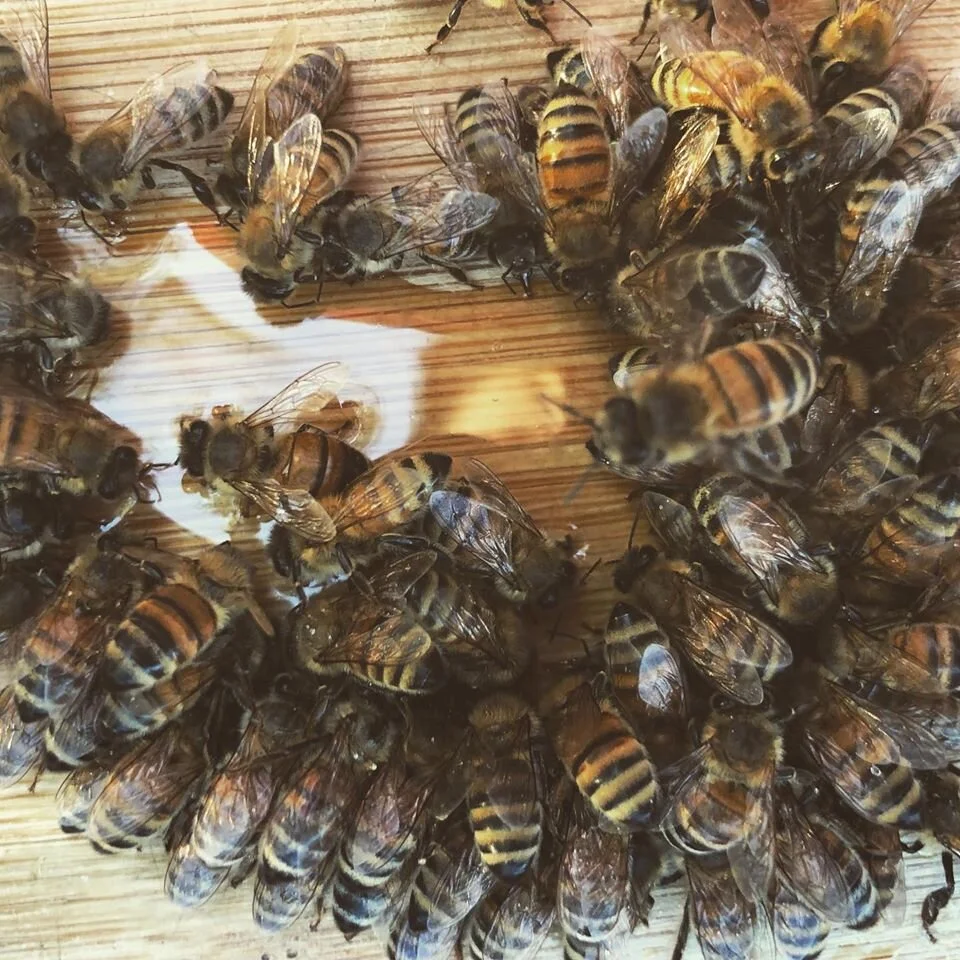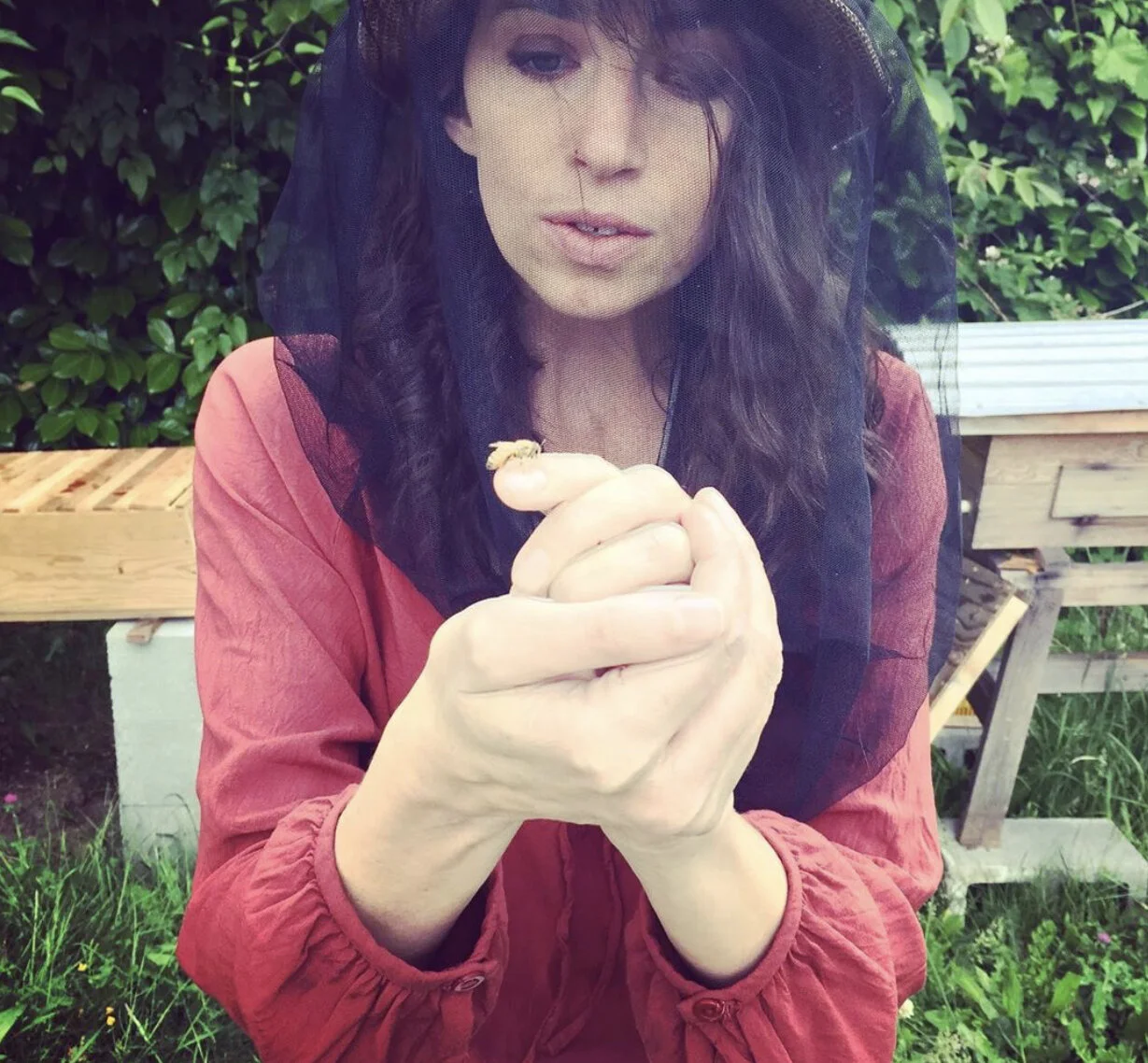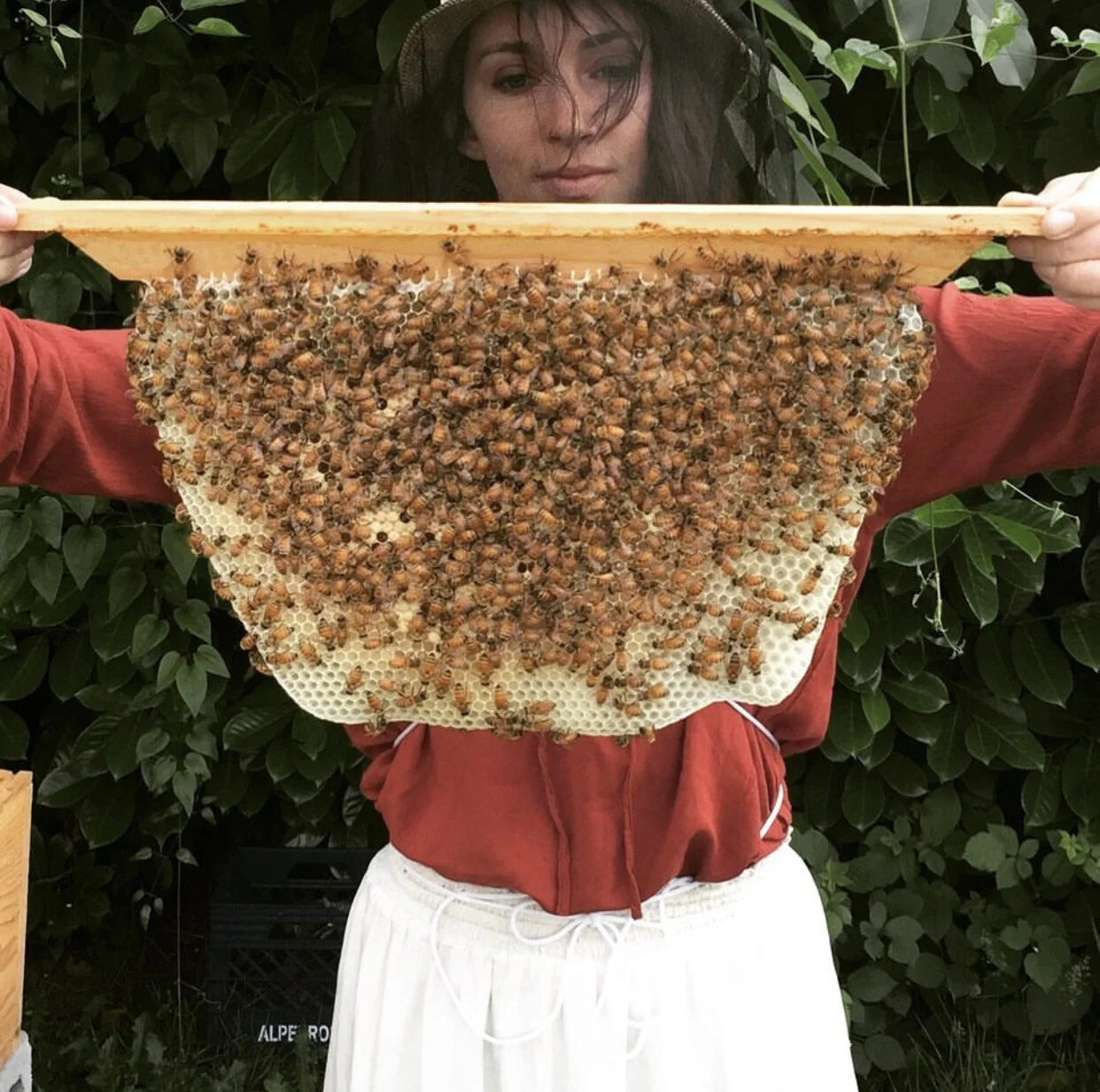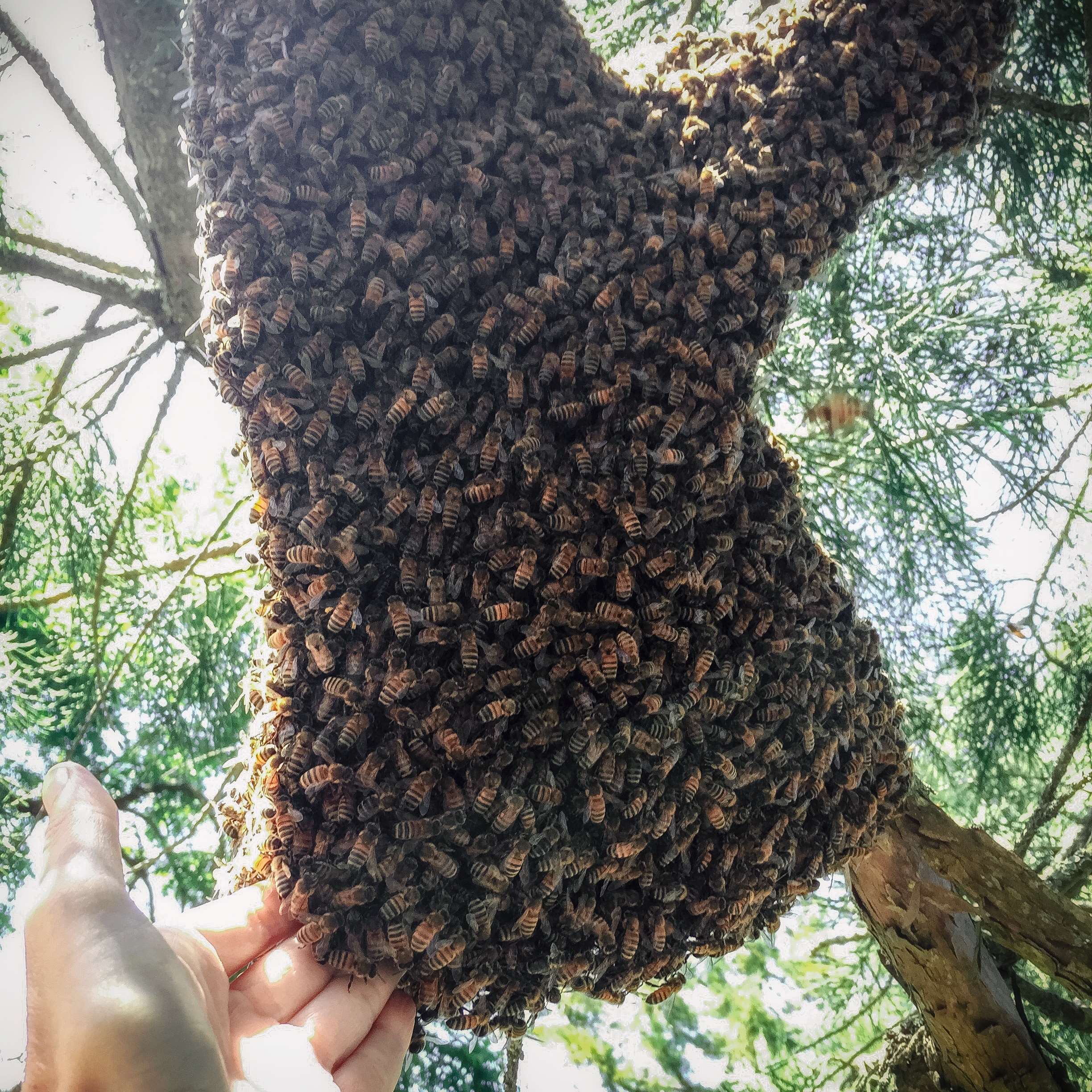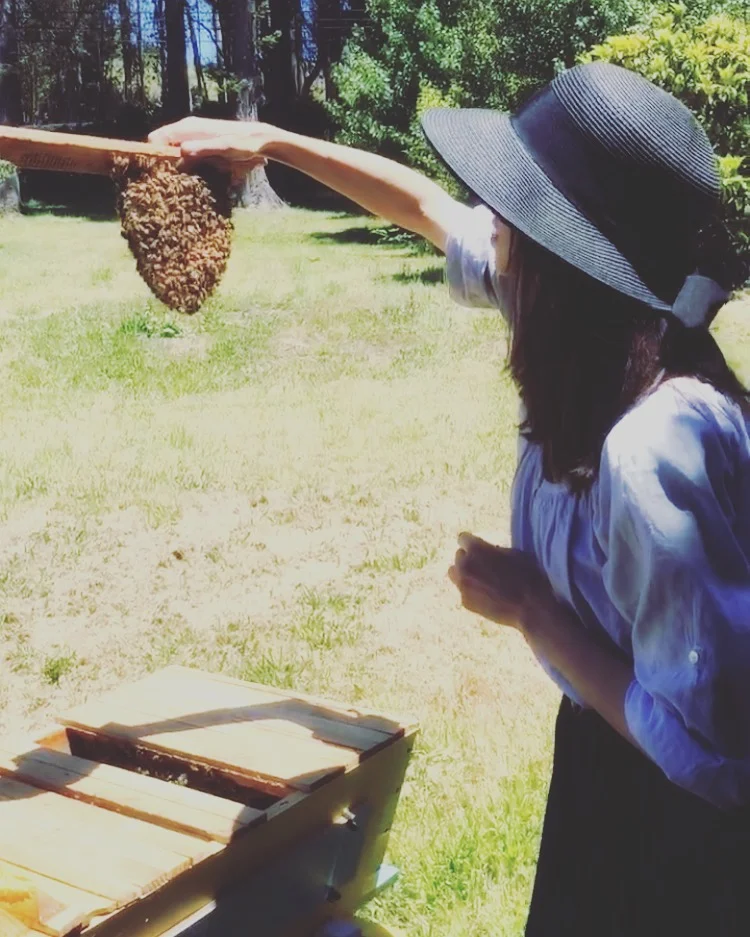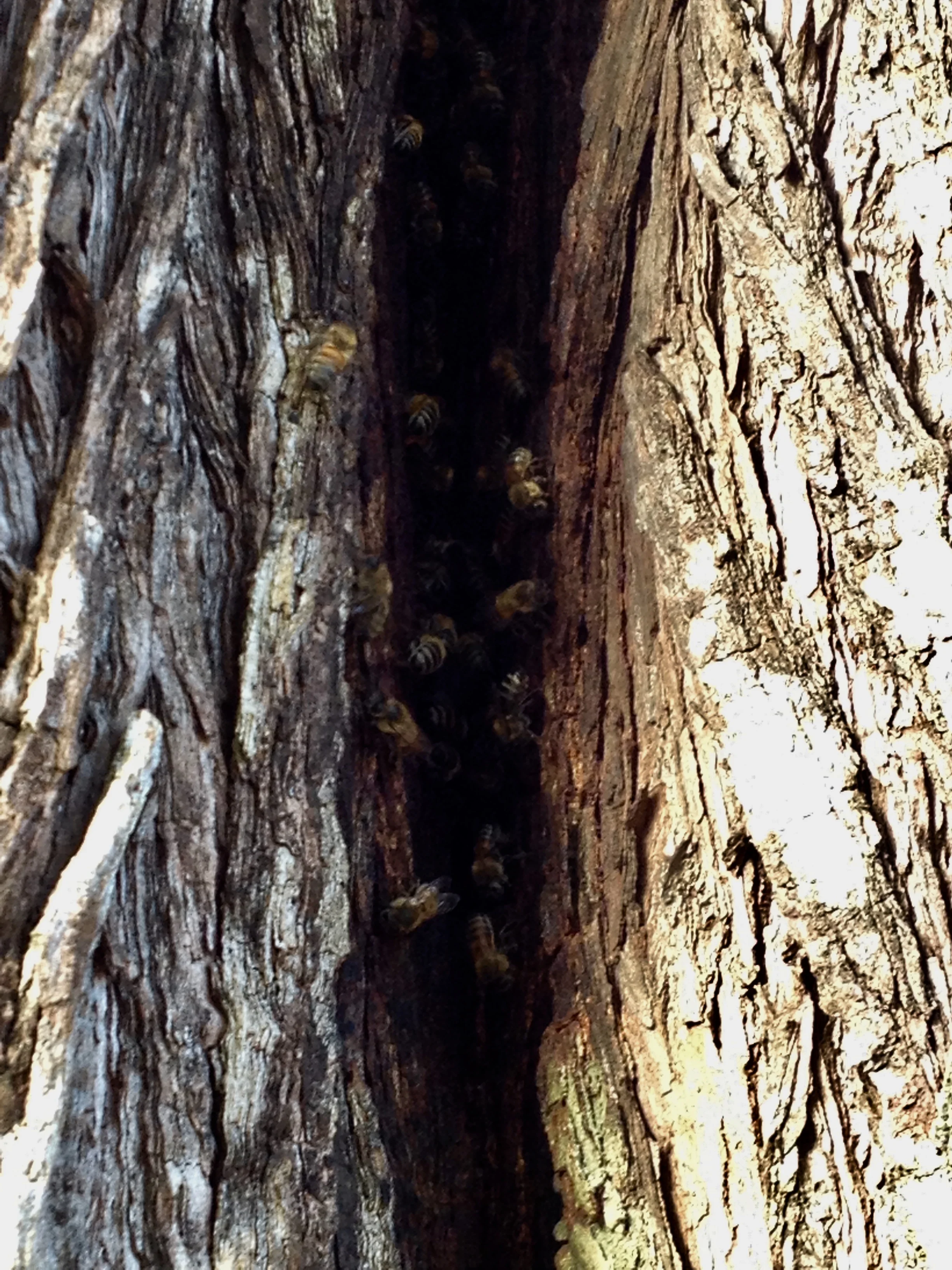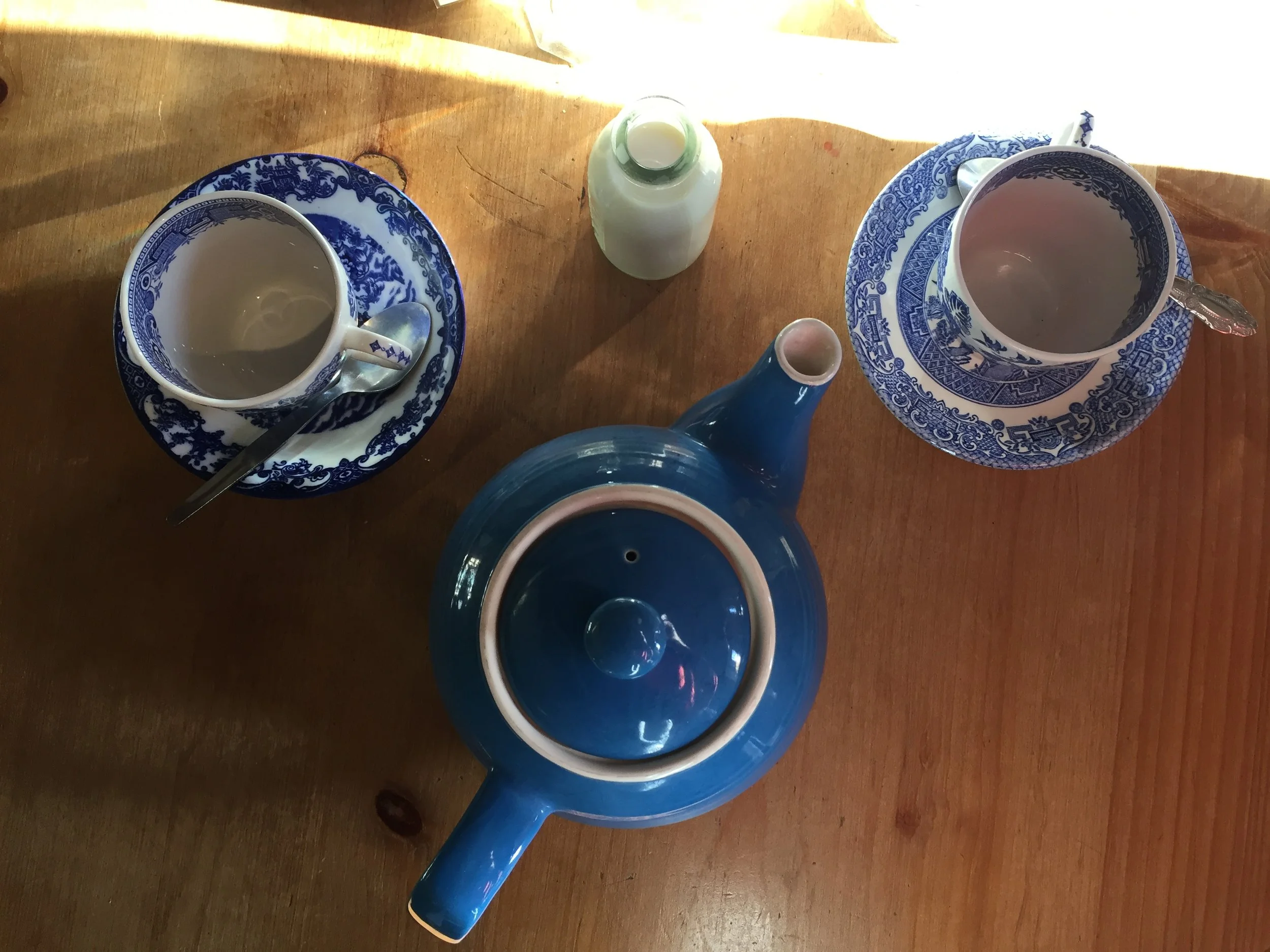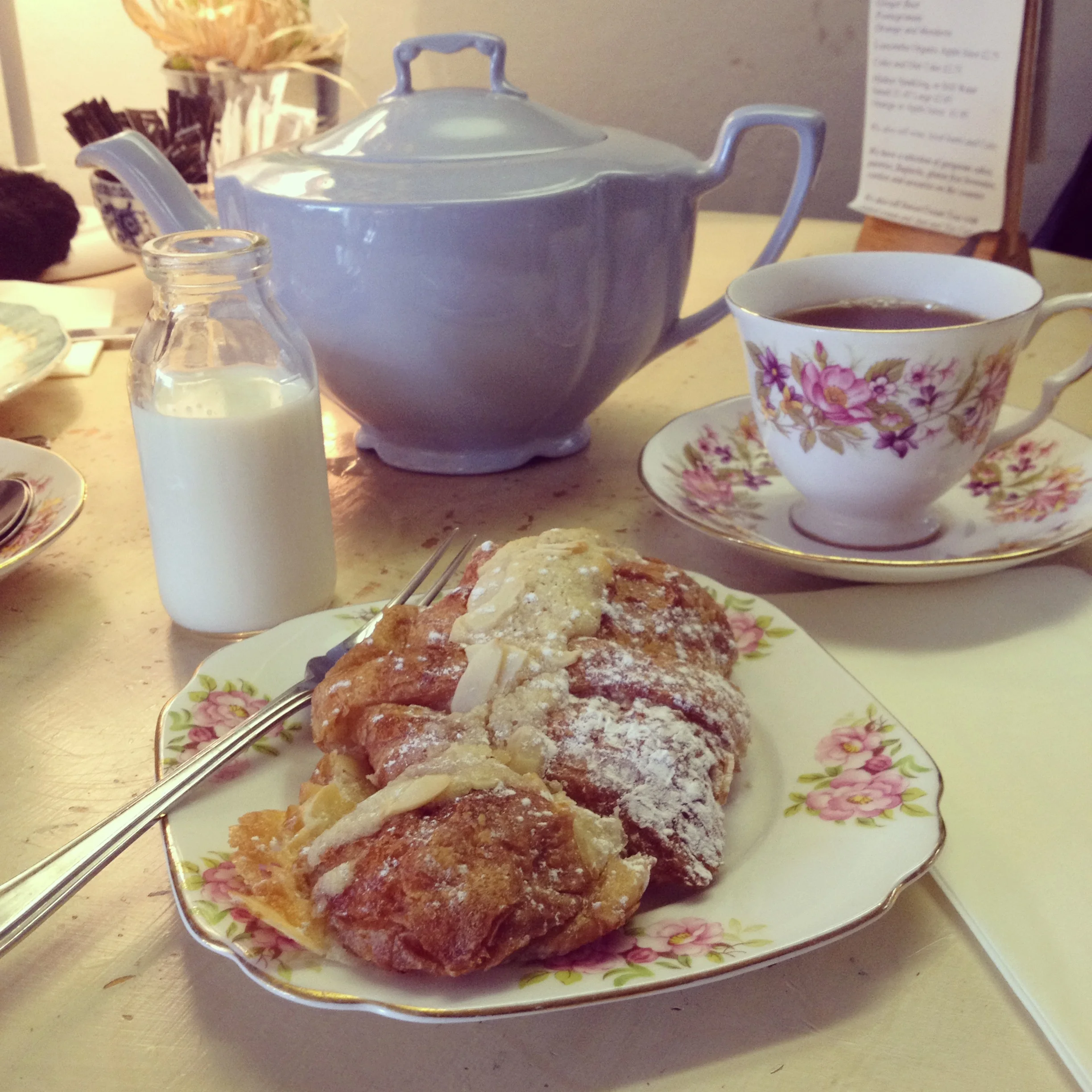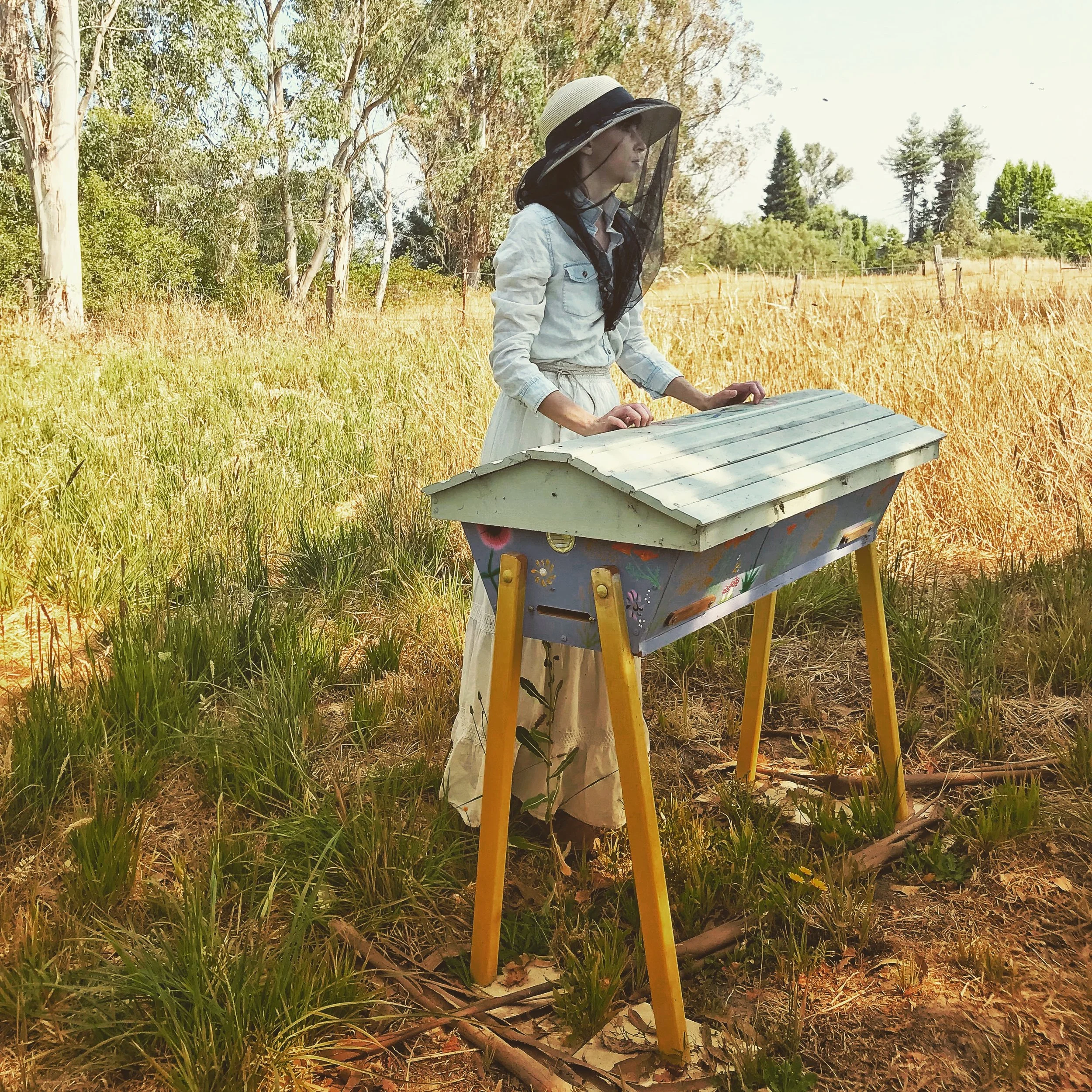The Ceremony of our Lives
In February, I had the tremendously rich experience of teaching Apis Sophia Exstasis in my home state, after 3 years of teaching the same body of work in France. Under a constant deluge of wet weather, a group of us gathered in the Mendocino oak savannah to experience what I now regard as six days of ceremony. It was utter magic.
In February, I had the tremendously rich experience of teaching Apis Sophia Exstasis in my home state, after 3 years of teaching the same body of work in France. Under a constant deluge of wet weather, a group of us gathered in the Mendocino oak savannah to experience what I now regard as six days of ceremony. It was utter magic.
Shortly after, I taught my first online dream incubation course, centered around an all night dream healing ceremony. Inspired by the dream healing temples of Ancient Greece, the program focused on ritual preparation, working with spirit guides, and eventually a night of liminal dreaming and vision seeking to support individual healing and transformation.
Having such profound ceremonies two months in a row, I started to think about how essential ritual and ceremony are to our lives. When I look back on some of the ceremonies of my life, there is often a strong feeling of before and after. Meaning, the ceremony became a marker point for some form of change, small or massive, in my life. Usually that change began internally, but often there were real life ripple affects that I could have never dreamed of or predicted.
Ceremony changes us. It weaves us into the creative fabric of the living earth. It gives us a change to be of service, and to also surrender to the magic of the unknown. I'm tired of the word manifestation. I want rites of passage. I want all night vigils. I want dancing around the fire, and gazing into the wombic void.
Ceremony changes us. It weaves us into the creative fabric of the living earth. It gives us a change to be of service, and to also surrender to the magic of the unknown. I'm tired of the word manifestation. I want rites of passage. I want all night vigils. I want dancing around the fire, and gazing into the wombic void.
To get to those larger moments of ceremonial change, we also need moments of dare I say, mundane ritual. Why mundane? Because when we make ritual part of our every day life, it become the magic woven into the mundane. When we leave butter out for the wee folk, or cut our hair on the new moon. When we light a candle at breakfast, or leave a small plate for the ancestors, we are making the ritual magic ordinary.
Yes, I love a grand, powerful, life altering ceremony, but it's in the daily ritual, or folkcraft, that we actually start to feel the magic of the more-than-human world, the magic of the mystery, permeate our being.
So I ask you, what are the small rituals you can create to keep to tied to the magic? And when you don't have access to a week long retreat steeped in wombic oracular magic, what are the small ceremonies you can create for yourself? Where can you set time aside to honor something, to prepare, to welcome, to end, to transform, to acknowledge, to heal.
As we come to the seasonal shift of the equinox, what small ceremony can you weave into your life? Is it perhaps a ceremony to welcome the bee swarms back to the land? Or a lunar eclipse ceremony to let go of what might still weigh on you from your winter's work? Or perhaps a ceremony to bring life and abundance to the lands that grow your local produce?
Whatever it is, know that in the act of ceremony and ritual, you are not alone. You are being witnessed by a myriad of beings who see the kindred spirit you are, and know you as part of the web of life.
She Was A Bee: The dance between myth and fact
There was once a temple built of beeswax and feathers. It sat in a mountainous region near a cave where bees, or was it souls, came and went.
On looms of spirit, nymphs wove the purple threads of form, while honey pots filled, and the the divinatory bees in their maiden nature, swarmed in and out.
There was once a temple built of beeswax and feathers. It sat in a mountainous region near a cave where bees, or was it souls, came and went.
On looms of spirit, nymphs wove the purple threads of form, while honey pots filled, and the the divinatory bees in their maiden nature, swarmed in and out.
After some time, the Temple far below the ancient cave of mysteries, renewed itself in stone, for stone is the most lasting of substances to the mortal eye. Yet still beneath its cool, firm walls, remained the hidden remembrance of holiness formed from bodies who fly on veiled and feathered wings.
***
We are always reinventing the past. Reweaving myth and retelling history mythically. Borrowing from poets of old and calling them historians, we seek to divine what was. We beg the old pages and stone tablets to reveal facts which we call truths, but is it not all part of a story ever-changing? Are we not always dreaming and being dreamt in mythic time?
The above words are threaded together from ancient texts depicting Delphi and the Corycian cave further up the mountain from this divinatory temple complex. It is said that the second temple of Delphi was built of beeswax and feathers. How are we to interpret these words? How do we make meaning of the presence of nymphs and bees in the cave above? Does it have anything to do with the priestess who offered lasting prophecy being named the Delphic Bee?
I find the further into the past I delve for truth in the form of facts, the more the certainties of what was crumble in my hands. What we want to be there, written for all to see, is not. The mysteries we seek, are called mysteries for a reason. We romanticize the gleanings and glimpses. We cast aside the story that the oracles were frothing, babbling, drug addled. We reawaken the story of women seers, learned, and adept. We remember that women’s spiritually has been looking for ways to remember itself.
The further I go into following the bees into antiquity, the more my longing for the romance of it all is slowly replaced by a different, more sure-footed knowing, that places the mysteries of the ancients within the same labyrinth my feet have always been walking upon.
At what point did we decide that the historian and the artist were cut from different cloth? At what point did the historian become one who deal in reality, and the poet, one who does not?
There are truths in the poems and stories. Deep earth, ancient selves, universal memory kind of truths. Yet how do we draw meaning from the pin pricks of light that we glean from ancient records and art, while also appreciating that we will never truly know the past?
Why? Because history too is part of a mythic working, where poets become historians and record keepers were artisans.
Always we seek not to assume, and yet always we fill the cracks of lost history with thoughts, desires, and assumptions of our own.
Delphi is a place where prophecy was given by the Delphic bee, also known as a Pythoness, for over a thousand years. And somehow, mixed into the cooking pot of Delphic history are our friends, the serpent and the bee.
What history tells us, is that only women gave prophecy at Delphi. What I hear, is that once, the the hearts and minds of the people, it was believed that a woman could sit in the dark and become the voice of divine wisdom, and in this wisdom she was called Bee. In this wisdom she was called Snake.
Meanwhile, in modern day mayhem of our fast-paced lives governed by global markets, productivity apps, and information overload, there is a European folk pathway, based in animism, that turns to the serpent and the bee as guides in the living practice of giving oracle. Who is to say if some spark of the bee nymphs and the pythonesses did indeed find its way from antiquity to the present? Who is to say that when we drop into the dark, and open our bodies to the magnetic earth, we might in fact, be singing the same song we have been seeking?
photos by Koa Kalish
Business Tips: How to go From Zero to Campfire Coffee in a Few Decades
I’ve been in a big renegotiation about my relationship to work. I took this December off from classes and clients because I didn’t really get a maternity leave when my daughter was born. I worked all days and all hours throughout my entire pregnancy.
I’ve been in a big renegotiation about my relationship to work. I’m coming out of my second maternity leave with a bang, and it’s a little jarring. I worked all days and all hours throughout my entire pregnancy. For those of you that don’t know, I’m a single mom who made the choice to become a parent on my own, after years of waiting for a partner. I knew I needed to figure out a work situation that allowed me to stay home as a single nursing mother, and 6 years ago I started planning.
In 2104, after 4 years of beekeeping, Honey Bee Wild was formed. It would become the vehicle through which this pregnancy felt possible. I got very good at being proud of my work ethic. Hustling. Juggling. Getting things done. Octopus-arms-for-brain. I was usually up till midnight working. Didn’t really know how to schedule my life, or really take a break.
I have never really been secure around finances. My sense of confidence in my income was emotionally and physically wobbly to say the least. For most of my adult life I worked multiple service industry jobs (restaurants, coffee shops, tasting rooms), and offered services like piano lessons, admin assistance, tarot card readings. I’ve always lived paycheck to paycheck. That’s not to say I haven’t had my foray into wild ventures. Did you know I spent a year as a chef and owner of my own Crepe stand? I spent another year running deluxe river cruises in Europe. And I worked in the office of a predatory “spiritual” author. I searched for my career for a LONG time. Meanwhile I was searching for my partner so I could 1) love him 2) start a family. This was also taking a reaaaaaaaaal long time and involved everything from ceremonies, to dating apps, to flights across the globe.
Lots of ergonomically poor decisions while baby slept.
When I mentally separated the need for a life partner from the ability to have a child in 2016 (it happened all at once during a Joanna Newsom concert), I pivoted my life toward building a business that could support me as a single parent.
I moved from Portland to Sonoma County. I took part time restaurant jobs so I could build my business from home all day, and work in the restaurant industry at night to pay my bills. I learned how to design my own website. I became a virtual assistant so I could refine the skills needed to run a business. I spent my money on beekeeping equipment and trips to England to study a small shamanic tradition connected to bees. I treated my studies overseas like a masters degree: they were for personal growth, true, but they were also the investment I was making in my future career.
In 2017 I made a commitment to be out of the restaurant industry by 2019. In October 2019 I jumped into running my business full time. In 2020 I found a donor, got pregnant, agonized over the pandemic like the rest of you, and worked worked worked. My business had its best year ever. In 2021 I had a baby. I ran my business from my phone while nursing. I got hired to teach a program for the Shift Network, which was incredible but absolutely dominated my early postpartum experience (hence second maternity leave). I hired an assistant, a nanny, a web designer, and a business coach. I took naps with my baby, I grieved friendships, I worked till midnight a lot of nights. When all was said and done, I stunningly doubled my income in a year. I didn’t go from 0-6 figures in 12 months like so many of the Instagram biz coaches talk about. I grew my business slowly, year by year, with a fuck-ton of intention and methodical planning. In 2021 I surpassed my financial goals.
I got out of debt. Let me say that again: I. GOT. OUT. OF. DEBT. Nineteen years of debt. I’m not sure if I can maintain the same income, but the year I gave birth, and ran my business for months from an iPhone while I nursed at 2am, while my insides turned outside, and my body, mind, and soul got permanently rearranged…THAT year was the year the benevolent spirit of my business spread her wings.
I remember when I was briefly connected to the 30-something crowd of coaches who all sold different variations of how to get from nothing to x figures in x amount of weeks/months. Really makes you question your turtle shell. But something about that always smelled off to me. The get rich quick model does work for some people, but it was never going to be my model. I like campfire coffee. You know, the kind where you wake up in the back country in the morning and even though your hands are frozen and you have the quick light stove right there. Even though you know you could have your cup in under ten minutes, you chose to gather the twigs, coax the small campfire into being, find the perfect rocks to balance the kettle, listen to the birds while it boils. Alright, I’ll admit, I’m super into someone else building the fire, and then crawling out of my sleeping bag, but then you miss the precious magic of first one awake with the wild.
Campfire and image by Rob Totoonchie - a damn fine back country fellow, photographer, and friend.
Campfire coffee is how I built my business. And the thing is, I don’t think my business would have allowed anything less. Honey Bee Wild is its own creature, and just like humans, it has it’s own divine timing. We forget that in the hustle market. And god do you have to hustle when Big Bro Capitalism, supported by patriarchy, Chistocentrism, and white supremacy is in charge of your rent, access to health care, student loans, etc. I digress.
I made campfire coffee, and it took a long time.
Last week I bought $600 worth of furniture to help baby proof the house: a nightstand, a cabinet, an ottoman, a shoe bench. I questioned every inch of those purchases, until I realized I am 40 and this was the first time I have ever bought a piece of furniture. I have often referred to my interior design as “college dorm” style, meaning any left over piece of furniture nobody wants I’d take. It was really damn nice to be able to buy a nightstand and say adios to this yard sale stool.
I don’t even know if I’ve “made it” or just had a really good year, but what I do know is that for the first time in my adult life, I’m not worried about how to pay my bills. Well, mostly not, bc my bills tripled with health insurance and child care now that I make more dollars (yes, I see you hamster wheel).
The point is, I didn’t know what to do with my life, or what career to have, or how I’d ever feel even a little bit financially secure. I’m not a one hit wonder. I don’t have a secret recipe to my success. I’m a single mom who kept one eye on the ground and one eye on the cosmos.
Now what? Do it all again. Rinse, repeat, and hope to stay afloat on the melting iceberg of our current reality? What I want is another month just to brainstorm. Candlelit dinners with friends. I want all these creative ideas inside to have room to bubble up. A year to write my book. I want to take an entire day off, and go to the beach with my daughter.
I am learning to exhale.
Death of a Colony
When a colony dies, it’s important to investigate the cause so that, perhaps, you can improve in your stewardship the following year. This is a photograph of a colony that lost their queen. What you see are a number of emergency queen cells. There were more on the other side of the comb.
When a colony dies, it’s important to investigate the cause so that, perhaps, you can improve in your stewardship the following year. This is a photograph of a colony that lost their queen. What you see are a number of emergency queen cells. There were more on the other side of the comb. Emergency queen cells are different than swarm cells. Swarm cells are found along the bottom and edges of the comb, often preceded by queen cups, which the bees have been diligently preparing for the potential queen larvae. They invite the old queen to lay eggs in these cups, and start a daughter queen and hopefully a new colony.
Emergency queen cells are built directly on the face of the comb when the bees suddenly loose their queen and don’t have queen cups prepared.
An egg can only be turned into a queen in the first three days of gestation, before it hatches. That means the bees have three days to raise a new queen, and if they miss the window, there’s no hope for the colony.
Why did this colony loose its mother? She was killed by yellow jackets wasps.
In a bad wasp year like this one, yellow jackets will attack a colony, biting off the heads of bees, eating larvae, killing the queen, and eating honey. The bottom of the hive was littered with the bodies of bees with their heads bitten off. I’ve never seen it so bad. This was a strong colony, but the yellow jackets were stronger.
What makes it a bad wasp year? A preceding mild winter and lots of dry conditions. A mild winter means some wasp queens survive and start raising their young early. With a wet, lush spring and summer, they have lots of other food sources, but if it’s 90 degrees in early May and dry AF all summer, the wasp population skyrockets. Furthermore, bee colonies hit their peak population in midsummer, they start to diminish in size, whereas yellow jackets hit their peak numbers in late summer and fall. This equation can spell doom for the bees.
This colony had a strong brood pattern and lots of honey, but the excessive heat and months of wildfire smoke weakened them to the point of vulnerability, and once the wasps took out the queen, that was it.
#bees #queenbee #yellowjackets
Let Yourself Be Honey-Tongued
There is poetry in all things if you look for it. Language, and how we speak about a thing, carries incredible power. Language shapes our world view. It shapes our understanding and our relating.
There is poetry in all things if you look for it. Language, and how we speak about a thing, carries incredible power. Language shapes our world view. It shapes our understanding and our relating.
Bees have been beloved to the poets since time immemorial. Sappho, Sylvia Plath, Kahlil Gibran, Pablo Neruda, Emily Dickinson, Maya Angelou, Ralph Waldo Emerson, Mary Oliver, and Antonio Machado to name a few. Indeed to speak well, beautifully, or convincingly is to be “honey-tongued”.
One of the things I hold most dear about the bee shamanism pathway is the craft of poetic speech. Very rarely is anything laid out for you in linear fashion. Every teaching drips in metaphor, poetry, and carefully selected words. Rather than “the infinity symbol”, it is the lemniscate. Rather than “working with energy” we sup of the flower. When we explore language with our honey-seeking tongues, we drape ourselves across the bed of our imagination. Worlds open. New pathways of seeing and understanding occur.
When I say beekeeping, what do you imagine? When I say bee guardian, what do you imagine?
When I say, “a practitioner of bee shamanism can learn to energetically work with their endocrine system”, that’s interesting right? What about when I say, a melissae can become a mistress of her own alchemical garden? Something else happen. I’m roughly talking about the same thing. The first makes a certain kind of sense. You can nod along, say “sure, sure”. The second evokes. It beckons. It hints at much more than energetic work. Something nearly mythic is at play, and you are invited to be part of the myths stalking you. A mythic life doesn’t have any interest in easy explanations.
Bringing the liquid amber of poetry into our language addresses the hole that black and white thinking leaves in us. It is rather anti-establishment. Patriarchy doesn’t love it. Your head of marketing is wringing their hands.
The dominant narrative likes things to be laid out: steps 1,2, and 3. No crooked path through the gloaming. No dalliance in the meadow on your way to market. It’s all “how to’s”, quick fixes, and “7 easy steps to siphon the creative soul right out”.
I’m fairly certain the bees don’t approach life from a users manual. They are infinitely more complex than branded, market-approved language will allow. So are you.
We owe the magnificent creativity of this Earth a little attention to the craft of language. After all, she spins in the black void of the universe, who’s very name hints at the honey-dark stuff that binds it all together: poetry, song, verse.
When I name a course Apis Sophia Exstasis, Entwine, or Betwixt and Between, I’m not trying to be mysterious. I’m calling to the particular poetry of your soul with words from my own. I believe that we are magnetically drawn to that which will call us home to ourselves. Have you ever stopped in a town while traveling just because you liked the name of it? Yeah, that.
Perhaps we could step away from the confines of words that sell, or words that make it obvious, and step into the sensation you feel on your tongue when you speak the name of a beloved softly to the night air.
Maybe then we can start to sniff out the pollen-scented language of the bees.
It’s Okay, She Can Handle It
I was having a book discussion with women from my beekeeping apprenticeship last week and we got onto the topic of sovereignty and body autonomy. I teach about asking the bees for permission each time you enter a hive or manipulate them in some way.
I was having a book discussion with women from my beekeeping apprenticeship last week and we got onto the topic of sovereignty and body autonomy.
I teach about asking the bees for permission each time you enter a hive or manipulate them in some way. This is NOT a common practice. In part, because we don’t know how to ask. We aren’t taught emotional and intuitive pathways toward knowing, or ways to work with our feminine side. In a Patriarchal system, we value our masculine side and masculine ways of knowing. Intuition and body knowing don’t have visual evidence to back them up, so they are undervalued.
I have a lot of students come to me after a rather upsetting lesson or in-the-field experience with a conventional, or even natural, beekeeper. It goes like this: beekeeper has an agenda. Beekeeper moves fast. Beekeeper quickly manipulates hive. Student expresses concern. Beekeeper says: “Don’t worry, they can handle it.”
There it is. The ubiquitous term that immediately devalues a being’s sovereignty. Not to stereotype, but only twice in the stories I’ve heard has this beekeeper been a woman.
What got me, is how often this phrase is used when manipulating or harassing humans. The female coworker experiencing sexual harassment: don’t worry she can handle it. The young boy being forced to toughen up: don’t worry he can handle it. The child being “lightly” bullied by their own parents: don’t worry, they can handle it. The 13 year old girl being teased by family for her changing body (me): don’t worry, she can handle it.
This attitude of toughness, or the ability to survive something, is so prevalent we don’t even notice how often we all say it. There’s a different between surviving and thriving. I think this is the crux of modern beekeeping: the commercial beekeeping industry has enforced a model of survival for human gain, dulling our senses to what it means to truly thrive.
The toughen up model of living may be great for survival in challenging environments, but it also comes with the Patriarchal disdain for those girly things like emotions, intuition, softness, gentleness, and god forbid, taking your time.
So next time you hear yourself of someone else say, “Don’t worry, she can handle it,” stop and check yourself. She may be able to handle it, but it does not mean she is okay with it.
Photo by Onyx Baird
There Is Still Magic
My daughter is one month old today. I am still landing in the steady belief that she’s really here, she’s really my daughter, and I get to keep her. Becoming a mother has been a lifelong dream of mine. I walked into it with no illusions. I knew it would be hard. I knew I’d need a lot of support. I knew I wouldn’t sleep much. But there really are no words to prepare you for what happens to your heart when your make a whole human, and they look up at you and smile in the early dawn light.
My daughter is one month old today. I am still landing in the steady belief that she’s really here, she’s really my daughter, and I get to keep her. Becoming a mother has been a lifelong dream of mine. I walked into it with no illusions. I knew it would be hard. I knew I’d need a lot of support. I knew I wouldn’t sleep much. But there really are no words to prepare you for what happens to your heart when your make a whole human, and they look up at you and smile in the early dawn light.
The in-between time of postpartum has been full of responses to her every need, and a few tiny pockets of reflection. I am always amazed by the series of events that conspire to create major life changes. If it wasn’t for the pandemic, this baby wouldn’t be here. If I had been partnered, this particular divine baby wouldn’t have been the baby I conceived. If I hadn’t spent years building up a business and a following here on Instagram, I would not have put the call out to raise funds for the donor/insemination process. The right people might not have ever known I was trying to have a child. The donor may have never come into my life. All the various pieces might not have fallen into place to bring this little one earth side.
We all buy into the story, consciously and unconsciously: the great career, the big love, union, a child, a family. I wanted it all, it that particular order. Life is much more creative than that. I chose to try for a child by donor because I wanted this baby more than I wanted to wait and hope for a partner.
I remember feeling sad and a bit guilty that I couldn’t have a magical, intentional conception with a partner who was also wanting her. Insemination felt so cold and clinical. My fantasies had to be firmly moved out of the way to make room for consciously conceiving this baby. And let me tell you, on the day she was conceived, it WAS magical. I was able to do the insemination at home. The way the donor came into my life was synchronistic, unexpected, and incredibly timely. Due to the pandemic, the potential donors at the cryobank (who I had painstakingly selected over months to make my final choice) were all running out of vials and the cryobank wasn’t taking any new donations.
I also found that I could do the insemination at home with a midwife. I tracked my ovulation, but the machine I was using broke and got the day wrong. I inseminated 3 days too early.
Since I knew it would take a number of tries, I wasn’t too upset when I discovered the error. We had already set things in motion.
On the day of my first try, the bees swarmed and gathered outside my window: a potent symbol of female fertility. Beneath the swarm I found the antler of a stag: a potent symbol of male fertility. We did two inseminations twelve hours apart. In between, I went into my hive named after the serpent of Delphi. While spotting the queen, I looked down and saw a huge gopher snake slide past my feet: an ancient symbol of both male and female fertility and power. Then a close friend called to tell me she was pregnant.
Three days later I felt implantation. I was having a smoothie in town and it happened. I didn’t dare believe but early symptoms showed up right away: abdominal cramps, water tasted metallic, abdomen rounded out a bit, breasts got fuller, dizziness, and a heightened sense of smell.
After a decade of grief and longing, it took one try. One magical convergence. So I’m here to say, even if it doesn’t look like how you planned, magic is still afoot. The most modern and seemingly clinical of procedures can be surrounded by ancient power and mystery. Life can always surprise you with gifts. By the Gods, this Instagram account made it possible for me to raise the money to do the insemination and was directly responsible for connecting me with the donor. You all made this possible. Magic. It takes being willing to see the magic when it happens: the signs, the synchronicities, the flow, the unexpected. I hope I can remember this as I endeavor to raise this little human to the very best of my ability. In a world full of chaos and strife, in the midst of climate crisis, there will always still be magic.
Embracing the Eco-Erotic
Sitting at the edge of spring, and the edge of motherhood, I am becoming aware that these years of “singleness” (whatever THAT means), have also afforded me the opportunity to cultivate something precious. A deep, wildly sensuous affair with the living earth. Do you ever pick a single rose petal from a flower just to caress your lips with it until the petal becomes translucent?
“And now you ask in your heart,
‘How shall we distinguish that which is good in pleasure from that which is not good?’
Go to your fields and your gardens,
And you shall learn that it is the pleasure of the bee to gather honey of the flower,
But it is also the pleasure of the flower to yield its honey to the bee.
For to the bee a flower is a fountain of life,
And to the flower a bee is a messenger of love,
And to both, bee and flower, the giving and the receiving of pleasure is a need and an ecstasy.”
Kahlil Gibran The Prophet
I had a dream last night where I was partner dancing with a beautiful stranger and someone broke us apart. I protested, “but I’ve been single for six years!” This late into my pregnancy it’s actually quite surprising to dream about love. While my dreams in the early stages of pregnancy were all about processing loneliness and the longing for the beloved made manifest, in the last few months I did something I haven’t tried in about a decade. I stopped my dreaming practices. As a dream teacher, this was rather uncomfortable, since living by example and maintaining my practices is so important to me. Yet with the loosening of the threads that have made up the whole of my identity (a byproduct of pregnancy), I needed to let go of the “work” part of dreamwork, and just see what my daughter and I wanted to dream together.
There’s been your fair share of chaotic nonsense dreams, but throughout the last few months, my dreams have been peppered with the sensuous and the erotic. Not in the way of lovely mysterious encounters with dreamy ( <—- yes pun) men, but with the inherent eros that ripples through nature. I have dreamt of bathing in thermal pools with mermaids, of swimming in a river canyon lined with blooming jasmine, of surfing with dolphins through rainbow phosphorescent seas, and of sailing on rope swings through a verdant forest. All of these types of dreams carry a note of the sensuous mixed with exhilaration, a feeling we often attribute to intimate encounters, or falling in love. However, these are all propelled by encounters with the natural world.
Sitting at the edge of spring, and the edge of motherhood, I am becoming aware that these years of “singleness” (whatever THAT means), have also afforded me the opportunity to cultivate something precious. A deep, wildly sensuous affair with the living earth. Do you ever pick a single rose petal from a flower just to caress your lips with it until the petal becomes translucent? Or go to the river early, when the water is still cool, just so you can feel the sun warm your skin as you dry out on smooth rocks? Or inhale the scent of a beehive in May, eyes closed, feet bare?
Do you know what this kind of behavior can do to your imagination? You can learn to inhale more than air. To breath up the deep green of a temperate rainforest, or the indigo blue of a desert night. You can see more in a ripple of hills and clouds than a horizon. You can float into the hanging gardens of Babylon. Hell, your own skin can bloom in peonies and anemones.
I think, this is perhaps what bees do every day. Riding waves of scent and light we only glimpse in our dreams. Enfolded in flowers. Submerged in the hum.
It’s also the inherent terrain of the child who is allowed to freely be with and of the Earth. In the era of climate change and biodiversity loss, we need more than ever to cultivate this relationship with nature. With the sensate experience of pleasure as it relates to sun, sky, wind, rain, sea, sand, fur, flower, snow, and stone. Our ancestors most surely did. Maybe not in the near past, but somewhere in your blood there are the whale-song memories of cultures who courted the moon and laid flowers at the feet of the sea.
This kind of relationship to the beloved that is more-than-human is not simply a pleasure, it is a necessity. When we feel more than our basic survival is at stake, when we feel our soul is entwined with this fluttering, heaving Earth, we change not just how we fight for it, but how we love.
Magnetic Maternal
I wanted to be held by a man. Someone who loved me so much that he wanted to create life with me. I wanted to share the moment of that positive pregnancy test with him, in joy and disbelief. I wanted him to bring me hot cocoa and soup and marvel and my shapeshifting. It was a fantasy, but not entirely unrealistic, after all, couples experience this all the time.
I wanted to be held by a man. Someone who loved me so much that he wanted to create life with me. I wanted to share the moment of that positive pregnancy test with him, in joy and disbelief. I wanted him to bring me hot cocoa and soup and marvel and my shapeshifting. It was a fantasy, but not entirely unrealistic, after all, couples experience this all the time. It took a decade of carefully picking apart the threads of love, partnership, and bearing a child. I could not accept that they might be separate things. Everything about my life had taught me to desire the coming together of two souls to create a third. At the same time everything in my life has also taught me that family happens in a myriad of ways, and love does not equal someone who desires to create that new life with you.
When I love, I love big. Not selflessly or with delusions of grandeur, but big like the way I feel when the ocean is lit up with phosphorescence, or when the songs sung by friends around the campfire make your heart want to burst. Big like rivers and autumn. It took a long time to learn the difference between desiring romance and desiring partnership. It’s embarrassing to talk about wanting a man, wanting a partner, wanting love. It feels like every statement of desire needs to be followed up by a disclaimer: “But I’m fine on my own.” “Oh, but I’m also a strong independent woman.” “Oh, but I’m not co-dependent.” “Oh, but I know I don’t NEED a man.” Need and desire are two very different things. What a perfect paradox of our times to be a woman who is at once longing to be met in love, and at the same time dismantling the patriarchy programming of a woman’s role in society.
It was some time around the 5th year after my miscarriage that I realized I may not meet someone in time to have a family. This is when the unpicking of the threads began in earnest. I was and remain unwilling to compromise on either of my two deepest desires around family: for a child and a partner. I slowly came to the understanding that my time to grow life in my womb was limited, while love of a man was not. I started to research the insemination process. I began to make life decisions around the possibility of being a single mother. I dated. I cried over a broken heart. I moved to a place with more access to friends, family, and community. I doggedly refused to become jaded. I took apart and rebuilt my life piece by piece.
In this 10 year period of dismantling and becoming, I discovered an untruth I have been carrying with me: that I was not deserving of more than one good thing at a time. I created either/or paradigms. I can either be a strong woman or be taken care of by a man. I can either have a career as a musician or have a child. I can either have a child or a man. I can either be a mother or a lover. I can either be magnetic or maternal. You only get one.
It was the bees who started to change this. I was captivated by their ability to surrender so fully to the bliss of the flower, and return with soul purpose to feed the nest. Behind them sat the Melissae, the bee women of ancient Greece, and all the teachings of their lineage. The Melissae is a woman who is fully alive to her eros and with her desire to nurturing life. Magnetic and maternal. One does not beget the other, they are constantly in flow with each other. No sequestered spiritual life for the bee women. They are fully of this world, dripping with the milk of the stars and the blood of the Earth. I owe my courage for conceiving a child on my own to the knowledge that these women existed. They exist. We exist.
What is it that crafts these mythic lives we live? Everywhere we see the day to day struggle of career, loneliness, memories, health, finances. Yet, underneath and swimming around this is the possibility that you are crafted from the same material myths are made of. The stuff that reaches beyond the fantastical and straight into the soul of things: long journeys, transcendent moments, the dark night of the soul, the wise mentors, perseverance beyond the odds. Whatever new story I am writing, I know now there will be at least one essential strand that I pass down to my daughter, and that strand is the red thread of Womanhood. When we look back in time and lift the veil of history written by men, we find a rich sea of women’s spirituality, women’s traditions, and women’s stories. Cultures and traditions that revered the Mother as creator and bringer of life. The creatrix. She who we both come from and return to; the void of creation, the magnetic Earth. She who is both Mother and Lover. She who is full bellied and entirely entwined with her own sexual potency. She who gathers the winter to her breast for the long sleep. She who dances wildly through the desert and gazes quietly into the moon-filled pool.
Perhaps separating the strands of partner and child are less about coping with grief and longing, and more about inviting the night sea memory of reverence for the Sacred Feminine to take center stage for the new little woman that I am carrying from one side of the veil to the other. Perhaps she chose me because I am just wild enough to choose to bring her fourth on my own. I am not striking out alone, but rather sinking into an often unspoken of lineage of women. Women who were not “single mothers”, but mothers within societies, priestesshoods, and tribes where a woman was not dependent on the nuclear family to survive.
As I near the portal of birth, there is a candle burning for the pathenogenic priestesshoods we’ve nearly forgotten about. A candle burning for the womb shamans. A candle burning for the grandmothers midwifing their granddaughters. A candle burning for the pythoness prophetess and her womb utterings. A candle burning for the red tent. A candle burning for the way of the rose.
I do not doubt that my desire is strong enough to weave a family for my daughter that includes a father. I have no say over the timing, but I do know that she chose me now, and I chose her. I chose her during a global pandemic. She chose me when all the hands of community could not hold her as she enters the world. I chose her despite the sometimes insurmountable heartbreak. She chose me because I am alone, not despite it. I chose her because I can, not because I’ve run out of time. She chose me because I am strong and soft. I chose her because I am brave, and because I wanted her more than anything in my life.
I have never felt more in touch with my womanhood.
Together we are the maternal and magnetic, dripping into garden of life.
Photos by Koa Kalish
The Courage to Steward Hives
Rendering comb down to golden disks of beeswax is one of the ways I process the loss of a hive. By giving my attention over to extracting the pure, golden, divinely scented wax from the skeleton of a hive, I feel connected to the life-death-life cycle of that hive.
Rendering comb down to golden disks of beeswax is one of the ways I process the loss of a hive. By giving my attention over to extracting the pure, golden, divinely scented wax from the skeleton of a hive, I feel connected to the life-death-life cycle of that hive.
I was on a walk this morning with one of my friends Michael Thiele of Apis Arborea. He establishes nest sites for apian beings (bees) in various watersheds, both rural and populated areas. Mainly log hives, which as a more natural home for honeybees. We were discussing the challenges of caring for bees as “treatment free” stewards amidst a culture and beekeeping climate of mass importation of commercial bees to our area and what that does to the population of locally adapted bees. We came up against the dichotomy of experiencing a sense of seasonal dread of loss with a surrender to the greater not knowing of what’s possible if we continue to try our best to listen to the innate impulse of the bees and how they live. It brought us to questions, as our talks often do, of language around beekeeping. What does it mean to be a keeper? What does it mean to be a steward? Or a witness?
I think to steward habitats for bees in a bee-centric model requires a tremendous amount of courage, because to do so means you will be forced to witness climate change first hand. You will not be able to turn away from biodiversity loss. From habitat destruction. However, in presencing ourselves with the bees, and being willing to listen and watch, we start to create and internal path that goes beyond grief, denial and apathy, and towards a constant and subtle shifting of one’s world view. We can’t change the world until we remember that we are nature, and from nature, life finds a way.
She Survived
Once, I drove through the narrow country roads of west Cornwall to find a sacred well. It was autumn and the sea looked Caribbean turquoise. The map wasn’t very good, but my friend and I found the well, partially overgrown with ivy, but not forgotten. One of the old places, where women’s water wisdom once offered healing and insight. A nearly obscured heritage. ⠀
Once, I drove through the narrow country roads of west Cornwall to find a sacred well. It was autumn and the sea looked Caribbean turquoise. The map wasn’t very good, but my friend and I found the well, partially overgrown with ivy, but not forgotten. One of the old places, where women’s water wisdom once offered healing and insight. A nearly obscured heritage. ⠀
The land owner, Trevor, met us at the gate, literal pitchfork in hand. He was happy to see us. He had learned a thing or two since he took over care of the property. He spoke to us of moon pools and the goddess Diana. He said Druids and shamans and all manner of pagan folk had visited the well over the years. It’s important, he said, because a well like that must be tended. He sent us on our way, we made our prayers, left our offerings and wondered at the lost ancient ways weeping through our veins.⠀
Then Trevor asked us in for a sherry. You never refuse a sherry from a white bearded farmer guarding a sacred well. There are rules. ⠀
Inside there was a spinning wheel and herbs. There were stacks and stacks of books. There was the love of a wife long past. Trevor handed us sherry in tiny glasses as said, “You know, this home used to be the home of a famous herbalist. Jessica was her name. She lived here in the 1600s. She knew how to make the secret preparations to call down the bees.”⠀
There it is. Not a mention of bees from my lips and here, this agnostic, curious farmer is telling me about the bees. How she could get them to swarm into the house. How she would heal the people with their remedies. She may have survived despite her arts, when so many women of her time perished. She who lived with these walls, and drank from the well, and walked in the ways of women’s mysteries. She who lived in a time when herbalist was synonymous with witch. Her wisdom meant death.⠀
Dear you, who tends the garden and sings to the bees in 2019, know that the thread survived in you. Remember that no matter how hard the men of the church tried to take women’s spirituality away from them, it survived, because it’s in you now.
They took the power of your weaving chants and called you an enchantress. For this you burned. They said no one could chant words of power but men. They took your healing arts and called you a witch. For this you drowned. No one could heal, save the grace of God and his doctors. They took your words and turned them against you. For this you were silenced.
But you survived, because the songs you wove were strong and made of the earth herself. You survived because you felt the warp and weft of life and death move through your own lunar tides, and you came to know cycles. You survived because you knew that someday you would be borne into the rich blood of your distant granddaughter and she would learn the secret ways to make preparations to call down the bees.
When the Death Goddess Comes
We’ve given her many names: Callieach, Persephone, Nepthys, Kali. But her original name was Earth. Mother. Crone. Womb and Tomb. There is no death goddess who is not also tied to, or herself a goddess of rebirth. They are not separate, because life is not, and never can be separate from death. This is why the Kelts built passage tombs or long barrows. We are born of the Mother and return to the Mother, her dark and earthly embrace.
We’ve given her many names: Callieach, Persephone, Nepthys, Kali. But her original name was Earth. Mother. Crone. Womb and Tomb. There is no death goddess who is not also tied to, or herself a goddess of rebirth. They are not separate, because life is not, and never can be separate from death. This is why the Kelts built passage tombs or long barrows. We are born of the Mother and return to the Mother, her dark and earthly embrace.
In the modern era we often associate bees with symbols of abundance, industriousness, and springtime. However, bees have also long been associated with death in equal measure. Bees and beehive are common symbols on tombstones, even within the Christian Era, but their association with death stretches deep into antiquity, where bees were seen by many cultures, including the Greeks and the Kelts, as messengers who could travel between the worlds, including between this life and the afterlife. This is part of the origins of Telling the Bees, when bee hives were visited after a death in the family to tell the bees of the loss.
Bees seem to be born of the Earth Mother herself, issuing forth from dark caves, tree hollows, and earthy hollows to bring life, honey, and springtime to the land. Similarly they return, as the serpent does, to their interior slumber within the Earth each autumn. Is it any wonder that in many parts of the ancient world bees were thought to be born from the carcass of a bull? They are midwives to death and bringers of life.
To be a beekeeper in the modern era, it is our sacred duty to befriend death. The bees require it of us. The midwives of death are asking us to midwife them. How? Through presence, through grief, through ceremony, through surrender. Bees die in the autumn. If you become a beekeeper you are wedding yourself to an intimate relationship with life and death. With abundance and the wasteland.
To be present to, and witness death is to radically honor the feminine principle. It’s feminist as fuck.
There’s a reason the original goddess was the Earth herself, and the Earth was seen as the all-creating Mother. Life and death were less of a duality, and more of an eternal cycle. A cycle witnessed monthly in rhythm of women’s bodies: to blossom and to shed.
To be a beekeeper you have to be able to sit with death. Your bees will die. Not always, and hopefully less and less. But they will die. From starvation. From varroa. From beekeeping practices you’ve been taught. From chemicals. From pesticides. From treating. From not treating. From smoke. From Cold. We steward them, and do everything in our power to keep them alive, but without addressing massive systemic issues related to climate change, biodiversity loss, and repression of the feminine, the bees are going to continue to die prematurely and often. Getting a hive to survive past a year or two is very challenging for new beekeepers.
When the death goddess visits your hive, what can you do? Honor her. Be fully present and alive to the death you witness. Clean your hive. Honor what’s left behind. Process the wax and the honey. Leave offerings of gratitude to the land. Bring your tears and your prayers. Feel that death move through your body, as a body made of the earth, who knows how to take and transform that loss. Celebrate the beauty they brought to your life and your land.
Meet her at the crossroads.
She May Not Behave Like You Expect
You may think you know her. You may have read about her behavior. You may have studied her. You may have experienced her habits. She may be nearly predictable. But, she may not behave like you expect. She is a Queen, after all.⠀
You may think you know her. You may have read about her behaviour. You may have studied her. You may have experienced her habits. She may be nearly predictable. But, she may not behave like you expect. She is a Queen, after all.⠀
This season I have had more encounters with queens than any before, and the great She is schooling me. We are taught to recognise a series of behaviours in animals, plants, earth and people. we learn to expect them. We greater knowers, like to know things. We like to predict. It makes us feel safe. It helps us steward. But the wild doesn’t read our textbooks or attend our webinars. We forget that each face we encounter, each bobcat, rowan tree, hummingbird, isn’t just an animal, they are a being with a personality, and personalities aren’t always predictable. ⠀
Life is wildly unpredictable. Our sunlight cultivation of order and neat little vegetable rows gets ruffled by errant vines and night visits by the deer people. But oh how we long to be among those unsettling antlered wanders. We know the swarm follows the queen and she hides deep within it, but oh how we long for that moment when she wades bravely along the outside edge. When she does not hide. She confounds us, but we long for a glimpse of her strange mystery.⠀
They say when you hive a swarm, the queen is in the heart of the cluster and stays protected deep inside the new colony. But yesterday she flew in the golden rays and landed on my finger. ⠀
They say a queen mates shortly after hatching, but I have witnessed her waiting weeks, remaining virginal and adored by her sisters. ⠀⠀
She is complex. She is a daughter of the sun and the moon. She yields and she takes no prisoners. She is a mother and a lover. She is discipline and chaos. ⠀
She gives me hope as I step down an unusual road to motherhood, weeping this week in joyous gratitude for the village of people supporting me (you!), while being absolutely brought to my knees in the heavy grief of longing for a partner.
The Queens. Our ladies of Sun and Shadow, they hold my spirit in their delicate ferocity. In their promise for life. They remind me: be wild, step bravely, let yourself be fed, wait for your time. Walk into motherhood with Her, and like her, be something you could never predict.
Food for Bees
Do you feed your bees?
Bees get their nutrients from flowers. Pollen provides protein, fatty acids and minerals, while nectar provides energy through carbohydrates (sugars) and minerals/vitamins.
Do you feed your bees?
Bees get their nutrients from flowers. Pollen provides protein, fatty acids and minerals, while nectar provides energy through carbohydrates (sugars) and minerals/vitamins.
The honey bees’ diet is nuanced and complex, gathered from the diverse floral offering of the bioregion and stored for consumption in the hive.
As bee stewards, we often need to be mindful of nectar sources and potentially feed our bees. Reasons to feed might include: a prolonged drought leading to a nectar dearth, a long winter, a baby colony, and inadequate forage in their habitat.
In conventional beekeeping, another reason to feed you bees is because you took too much of their food and have to feed them so they survive. 🙁
Here’s the catch: in most beekeeping practices people are taught to feed bees sugar. Even if you don’t take too much of their food, you are still expected to feed them sugar syrup for all the above mentioned reasons and also as stimulative feeding. When beekeepers feed bees too early in the spring, it stimulates the colony to start producing more bees. This is because the sugar coming in signals to the queen that there is a nectar flow and she needs to lay eggs for new foragers to be born. Beekeepers do this to get a jump start on spring and build up a bigger workforce toward human aims of production and capital.
The thing is, sugar is not honey. Sugar is not bee food. They can survive of it, but not forever. It’s hollow food. Ultimately, sugar syrup damages their digestion and weakens their immune system. Beekeepers say you can’t feed bees honey because it could contain the spores of a disease called foulbrood. This is true, however, it can be avoided if you know your honey source (talk to the beekeeper your sourcing from) and also know if foulbrood is reported in the area you live in.
If you are going to feed your bees to help keep them alive and support immune health, consider feeding them their own food: honey. If you have to feed them sugar, mix it with some honey or alternate between honey and sugar. Remember, honey is bee food, before it is human food.
Hymenoptera: veil-winged
Hymenoptera: veil-winged. An order of insects including wasps, sawflies and honey bees, but particularly connected, linguistically, to the goddess culture at its ties to the honey bees. Hymen is derived from Greek and means “membrane” or “veil”. It denotes not only the veil within the virginal maiden, but also the veil draped before in innermost sanctum of the temple of the goddess. It also came to represent the veil between the outer world and the hidden inner world of women’s mysteries, both physically and spiritually.
Hymenoptera: veil-winged. An order of insects including wasps, sawflies and honey bees, but particularly connected, linguistically, to the goddess culture at its ties to the honey bees. Hymen is derived from Greek and means “membrane” or “veil”. It denotes not only the veil within the virginal maiden, but also the veil draped before in innermost sanctum of the temple of the goddess. It also came to represent the veil between the outer world and the hidden inner world of women’s mysteries, both physically and spiritually.
Honey bees are said to arrive with the heliacal rising of the seven sisters, or Pleiades, in the East every spring. Born of the constellation Taurus, the bull, the bees rise in the spring bringing life. The bull is an ancient symbol of the goddess and goddess culture. Through the union of the bees borne of the bull we receive the sustenance of life: milk and honey.
Mirrored in the stars, these seven celestial bees hold the story of the veiled one as well. With the suppression of the goddess culture many myths were rewritten. The seven sisters became seven daughters, one of whom was named Merope or “bee-eater”. She dared to love and wed a mortal and for this she was shamed, turning her face away and dimming her light in the night skies. While every Greek myth has many versions, it’s important to remember they all have threads running back to old memory and old ways that venerate the feminine instead of shame it. In another version these sisters are seven doves, like the doves or priestess that flew out of Africa and founded the three major oracular centers in the Ancient world, including Delphi, where the Delphi Bee gave oracle.
In some myths they were the nymphs of Artemis, who was deeply tied to the bee nymphs (melissae) and the guardian of the wild bees. And in still oldrer, obscure myths the stars were in fact, seven bees: six daughters and their queen, who remains veiled (hidden) in the inner sanctum of the temple of the bee.
Food for thought next time you don your bee veil to go whisper to the bees.
Re-piecing A Hive Together
I dreamt last night of a hive torn to pieces. Every bit of comb on the ground was covered in bees. It was the largest hive I’d ever witnessed. Night was approaching and I had to gather all the bees and broken comb. I had to provide them with a new home in a hollow under my bed before it got too cold. Many people around me were oblivious, but some unexpected friends and family came to help. No one had protective clothing. We gently took up each comb with bare hands. Despite the darkness, despite the cold, despite the gravity of destruction, the bees didn’t sting. They understood we were here to help.
I dreamt last night of a hive torn to pieces. Every bit of comb on the ground was covered in bees. It was the largest hive I’d ever witnessed. Night was approaching and I had to gather all the bees and broken comb. I had to provide them with a new home in a hollow under my bed before it got too cold. Many people around me were oblivious, but some unexpected friends and family came to help. No one had protective clothing. We gently took up each comb with bare hands. Despite the darkness, despite the cold, despite the gravity of destruction, the bees didn’t sting. They understood we were here to help.
I was reminded this morning of the delicate balance of relations. A bee, in her nature, stings. It would be unwise to pretend the bee doesn’t sting, the snake doesn’t bite, the lion doesn’t devour. Yet, it would be equally unwise to assume their instinct stops there. All beings also feel. They also have the ability to sense intention. How often have we recounted amazed stories of human interactions with the wild where an animal that should have roared, charged, balked and bit, instead remained still, while the fishing line was removed from her great watery eye, or the steel jaws loosened from the trap?
Our human-centric greed has torn the nest asunder, but it is our very humanness that can defy fear and reach bare handed into the broken system to mend it. You just have to do it. Screw careful planning. Start the garden, risk love, write the book, speak to the trees, march with the youth. The people who join you may not be who you expect. The people who are listening may not have revealed themselves yet. Do it anyway. Mend the nest, mend the weave, mend the rifts despite the odds.
Mistress of the Wild
If you reach your hand back into the mythscapes of history, you will find, over and over, the story of the sacred other. The lover. The Twin. The Sister. The Brother. The Sacred Adversary. The Mirror. The Queen and her King.
If you reach your hand back into the mythscapes of history, you will find, over and over, the story of the sacred other. The lover. The Twin. The Sister. The Brother. The Sacred Adversary. The Mirror. The Queen and her King. You will find a story of a divide. A separation. A rift. A searching. A reunion. Isis and Osiris. Mary Magdalene and Jesus. Ariadne and Dionysus. Ixchel And Itzamná. One can not exists without the balancing force of the other.
It is said that Apollo, the Sun god, was the father of beekeeping, while his twin sister, Artemis, the Moon goddess, was the protector of the wild bees. The Master beekeeper was tempered by the Mistress of the wild ones. One governed civilization, while the other protected the wilderness. We over-civilized, wild souls sit at a turning point. We can not reject civilization, but we can also no longer allow civilization to reject the wilderness. We are being stalked by the wild. It is hunting us through our dreams, our water, our longings, our delusions. After all, Artemis is the swift and decisive huntress, is she not?
By César Álvarez Dumont
By Louis Grell
As a beekeeper, I am always asking how to balance the beauty of cultivated beekeeping with the rewilding necessary for species survival. In the modern era, the Father of Beekeeping has taken center stage, while the Mistress of the Wild bees has been systematically erased and forgotten. Her fierce wisdom pushed aside. Her moon-tipped arrow ignored. Her animal-speak hushed. The living myth continues on and we find ourselves netted by all we have forgotten. We can not survive off the wisdom of Apollo’s Sunlight alone. The bees know this, and so they have cried out with the only language that can truly grasp our adolescent attention span: Death.
Every myth is a journey. Every epic a story of light and dark, balance and ambiguity. Separation and reunion. Make room in your heart for the Huntress. For she who speaks the language of the wild. That heart chamber is not created by hatred of the God who slew the serpent, but rather, by acknowledging his role in the sacred arc of story, and stepping into your place in the continued telling. Apollo is not the enemy. He is not complete without his twin. The moon has no light without the Sun. There is a place for the beekeeper and the tender of the wild bees. Make room for your own paradox. Traverse betwixt and between. The bees are showing you how, so get your ear low to the ground and become the myth-weaver.
Shamanism Meets Tea Time
I’m about to board another flight to London. I seriously can not wait for scones and tea at No. 9 on the Green in Wimborne. I am visualizing pouring cream into a saucer as I write. Heaven.
I’m about to board another flight to London. I seriously can not wait for scones and tea at No. 9 on the Green in Wimborne. I am visualizing pouring cream into a saucer as I write. Heaven.
I have a suitcase filled with long skirts, a wooden distaff, special rocks, wellies, and an air purifier. Not the most obvious choices for a trip to England. Ok, the wellies get a pass, but they’re so damn heavy and awkward. (Please don’t tell me to wear my weight on the plane. You ever try wearing knee high rubber boots 7 miles over the ocean?) I’m on my way to the Sacred Trust, a school for shamanism, deeply rooted in the Path of Pollen, a European shamanic tradition with the honey bee at its heart. The air purifier is just because I’m allergic to mold. Go figure.
People have started to ask me if I live part time in Europe. I’d LOVE to say Yes, but the answer is, not yet. Since 2010 I have been traveling to the Sacred Trust to study a form of shamanism that survived the Romans, the Dark Ages, and the Inquisition. I equate it to a graduate program. A big investment with my time and money, which is helping improve my mind, body, heart, career and life path. That’s how I justify it to my left brain. My right brain couldn’t give two effs, because this work is 600% soul food.
The school teaches a line of gynocentric, bee-centric shamanism that honors the feminine principal. It is mostly made up of female students, although there are many men starting to take newly offered classes for all genders. It mostly works with bees, but there are serpents, stags and spiders woven in. It is multidimensional and embraces the betwixt and between.
The tradition is a small golden thread. A quiet hum that lasted through the burning of our grandmother’s grandmothers. It’s an answer to my American hunger for spiritual belonging. A hunger that longs for a sense of spiritual roots, but wars with how to be a native Californian without appropriating the spiritual traditions of the Indigenous people of this land. I can not begin to describe the relief I felt when my heart encountered the bee tradition and I cried those soul-aching tears of recognition, knowing that somehow, not all had been lost.
Let’s unpack that for a moment. First and foremost, I need to address privilege. I’m a white, western woman. My ancestors are oppressors and I carry that in my lineage. I refuse to be blind to my own privilege, and as a result of that refusal, I keep discovering ways that I have been. Let me just state that I am learning and I have a long way to go. Also, I fly over an ocean 1-3 times a year in the pursuit of earth-based wisdom connected to the part of my ancestry that was oppressed by Patriarchy and Christianity. So while I resist the dominant social institutions of the former two powerhouses, I am also partaking in the hypocrisy of the entire capitalist, planet-degrading #deathspiral, by using fossil fuels to catapult me in a metal box to a place where I can feel connected to the earth. That’s some real bullshit right there.
Yet, I also subscribe to the idea that there are certain soul places on this earth. Certain spots that speaks to us. Speak through us. Calls us. Awakens us. Claim us. Can a person be OF their native soil and also OF a patch of earth 6,000 miles from where they first touched their feet to the dirt? I most certainly have been claimed by more than one place in my life. Just are sure as I have been claimed by more than one heart. The English countryside is one of those places. And it requires a good set of wellies.
On with further unpacking. When I say I cried because “not all had been lost”, I mean, I am woman and a member of the gender(s) who were and continue to be shamed, maligned, violated and abused for our sex/identity. The wisdom ways of women and the honoring of the feminine in earth-based traditions were nearly snuffed out in Europe’s long history of violence against the life-bearers. Coming to a tradition rooted in my ancestor’s homeland that honors the voice of the womb and the power of the feminine principal is cathartic, to say the least. We ascribe voices to various body parts all the time, but when was the last time you considered the womb to have a voice? Not just the heart, or the head or the phallus, but the womb? Think about it.
Now imagine if you found a place tucked between meadow and forest where you were encouraged speak with that voice. Dance with that voice. See with those eyes. Utter with that yonic intelligence. Imagine relearning your body as though it were flowing with nektars, like a flower. Imagine learning new tongues informed by wind, sea, honey and fire. For those of you who have been wondering why my feed is periodically filled with photos of tea and cobblestones, that is why.
What is The Path of Pollen? I can’t really answer that. It is indefinitely ancient and ever new. It’s part of a very old story. It’s part of writing a new story. Its fingers are made of threads, its head made of stars, its womb made of bees, its longing made of serpents entwined. It is wombic. It is phallic. It is Both And. It is Neither Nor.
I am part of a tradition that stretches its storylines back through the distaff path of ancient Europe. It is a tradition of bee women, known as Melissae, and is very much alive and well in the modern world. The Melissae were the bee priestesses of ancient Greece, most commonly connected to the oracular Temple of Delphi. The Delphic Oracle, also called the Delphic Bee or Pythia (pythoness), was the prophetess for the Earth and of the Earth. It is said the priestesses inhaled the breath of the Dragoness, Python, Gaia’s daughter, and entered a trance, uttering prophecy for all who came to the temple.
I am here to remember how to listen to the voice of the earth, as she arises, a buzz, from within. Ten thousand bees offering nectar on the breath of python. May I be so lucky to glimpse her in the mirror.
And I’m here for tea, scones and whisky, because I’m multidimensional AF.
Feminist Beekeeping
I’d like to take a moment to talk about why Feminist Beekeeping is a thing at all.
First, let’s understand a few things.
1. We are all struggling with language and the meaning behind words.
I’d like to take a moment to talk about why Feminist Beekeeping is a thing at all.
First, let’s understand a few things.
1. We are all struggling with language and the meaning behind words.
.
As a natural beekeeper part of my job is to rework the language around beekeeping. Changing words like “worker bee”, to “female bee” or “sister bee” helps to shift our mentality away from the industrial era model of beekeeping which equates bees to factory workers. Similarly, working with empowering women and celebrating the essence of the feminine in all things/genders requires some tricky navigation around the rocky shoals of language.
2. Feminism is not exclusive to women.
I know this is basic feminism 101, but men can be feminists too.
Let’s review:
.
fem·i·nism
noun
the advocacy of women's rights on the basis of the equality of the sexes.
fem·i·nist
noun
1.
a person who supports feminism
Okay so we have a dictionary definition. That’s a start, but also riddled with pot holes. The point is, you can advocate for the equality of the sexes in all areas of your life, including beekeeping. You can be an advocate for how women are treated in this industry, etc etc
3. Feminist is not a bad word.
.
If you look back through the history of language, many words denoting bad, angry, evil or weak characteristics have their roots in gender shaming. Look up left-handed, sinister, witch, wicked.
Our modern stereotype of the angry, man-hating feminist is but one example of the demonizing of the feminine. You don’t have to be an angry woman to be a feminist. You are also completely allowed to be angry and a feminist. Just saying.
Feminine is derived from Latin ‘femina’ meaning "woman, female," literally "she who suckles”. As in, she who bears children and suckles them at her breast. So in its oldest sense, feminine means woman. The word has gone through centuries subjected to patriarchy and is now associated with qualities of the “weaker” sex. Qualities associated with delicacy, male-attracting, handkerchief waving, the good Christian wife, being soft spoken, being shrill, being emotional etc.
However, the term has been reclaimed by women and men alike to denote an energy or quality that is not solely based on biology, but can be understood as something that exists within all things and people. This type of feminine is often paired with other words to differentiate it. Sacred feminine. Divine feminine. Feminine principle. It has a mirror energy we call sacred masculine, divine masculine, or masculine principle.
These terms are adopted social constructs that help give us language in a dualistic world, but they don’t in an of themselves mean woman or man. We all have these intertwining, nuanced, full-spectrum internal forces. We play with the terms masculine and feminine as they are expressed from within us to help us better express our own wholeness, REGARDLESS OF GENDER.
When I talk about the feminine or the sacred feminine and its importance in the beekeeping conversation, I am referring to this: in the cultures of the ancient world (namely before classic Greek and Roman, where our language and much of our western social structure comes from) there was once a time of predominantly matriarchal cultures. This did not mean the inverse of patriarchy, where women dominated men (that’s patriarchal thinking), but rather cultures that honored and celebrated that all life comes from woman. These cultures revered the life-giving qualities of woman: breast milk, pregnant body, maiden/mother/crone, cyclical phases, etc. The earth was seen as the mother of all peoples because the planet literally provides us with life. Certain creatures and aspects of nature were also associated with life-bringing: cow/bull, moon, ocean, rivers, bees, and serpents, to name a few. Furthermore, what brought life could also consume and destroy (floods, decomposition, winter), which is where we get the many goddess myths associated with both these qualities. Hathor/Sehkmet, Kore/Persephone, Brigid, Kali, etc.
Enter the slow transition over to Patriarchy, which brought with it not just a cultivation of nature (hunter/gatherer to agrarian transition), but also a dominance over nature. Blend that with a shift to male dominant gods and eventually monotheism, and the power over women became synonymous with power over the land. I’m aware that is a very short, crude surmising of a very big topic.
Now we have in our lexicon a number of negative associations with anything to do with the life-bringing/life-consuming ebb and flow of that which is associated with woman. Furthermore, our dominance over nature continues in its most abhorrent destructive expression. We have experienced a terrible, life-threatening loss of the sacred associated with earth and nature as our life-bearing mother. This dominance-over mentality (let’s just remember this is also part of rape culture) is deeply imbedded in conventional beekeeping practices. It is found in our hive designs, our methods, our chemical uses, our thought and our language around one of the creature most heavily associate with the sacred feminine throughout time.
So, does feminism have a place side by side beekeeping? You bet it does.
::Becoming the Nektary::
California is burning. Greece is burning. Norway is burning. England is burning. The land is hot, cracked, brittle. The veins feel feeble, dry. As a child of California, I know fire season, but not like this.
California is burning. Greece is burning. Norway is burning. England is burning. The land is hot, cracked, brittle. The veins feel feeble, dry. As a child of California, I know fire season, but not like this.
If the bees teach us of community and service, they also teach us this: we much become the nectary. We must restore the flow of nectar to the land. We must do this within our own bodies and for the Mistress of Nektars herself: the Earth. We must become the flow-er. We must re-learn how to allow ourselves full access to our senses and our expression. When we do not dam, stifle, re-route our holy flows, we transform into healing vessels of milk and honey.
We are witnessing a earth hungry for nectar. We are witnessing our society, our nations, our animals, our peoples bleed out from fresh and old wounds. But that kind of flow does not feed the land; it cracks the earth.
I constantly ask myself how to be an agent of positive change in this 11th hour? There are many answers. Some are daunting. Some are humbling. Some are downright uncomfortable and gritty. But some answers are borne of water. Some are about the nature of becoming. So today, while I do not turn my eyes away from social activism, I keep an inward gaze on what it means to become the nektary. What it means to give ourselves this gift of total self-love. To let our nektars fall like rivers down our cheeks and heal with our tears. To let the moon guide our red waters. To let cleansing sweat rise from our skin and bathe us in catharsis, dance, reclaiming, embodiment. To dare to feel our own ecstasy. To let the full expression of what we are and what we feel move FREE within us. Drip from us. Circulate.
Nek-tar. Greek in origin. “Nek” meaning “death” and “tar” meaning to “overcome, cross over”. The liquid ambrosia that overcomes death. The drink of the gods. Liqueur vitae. Fluid, flowing life.
There are many roads to healing the burning earth, and none of them can be taken if we do not free our own fluidity from the shackles of a suppressed feminine flow. Men, I mean that sacred flow inside you too. Become the rivers, my loves.
